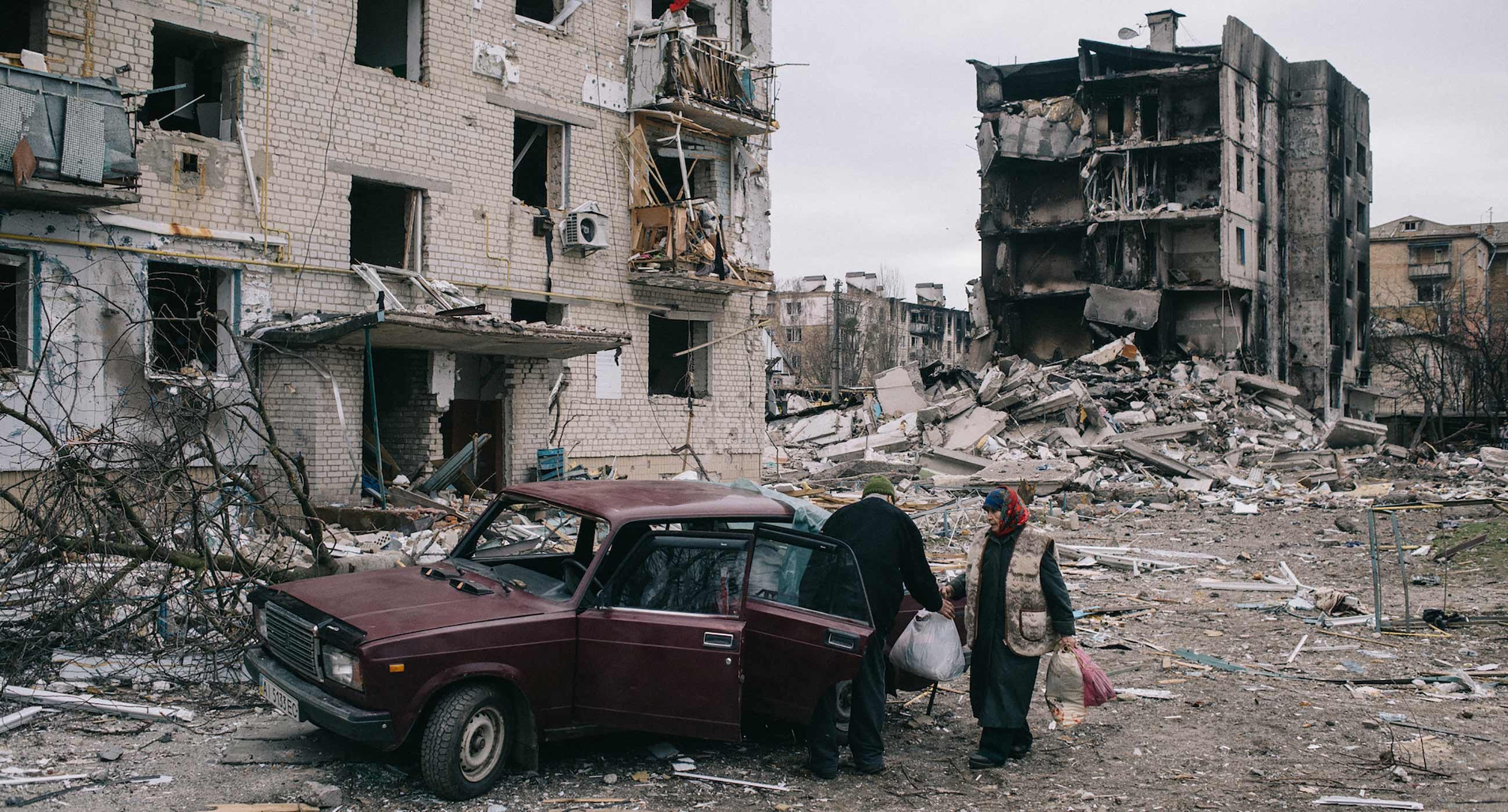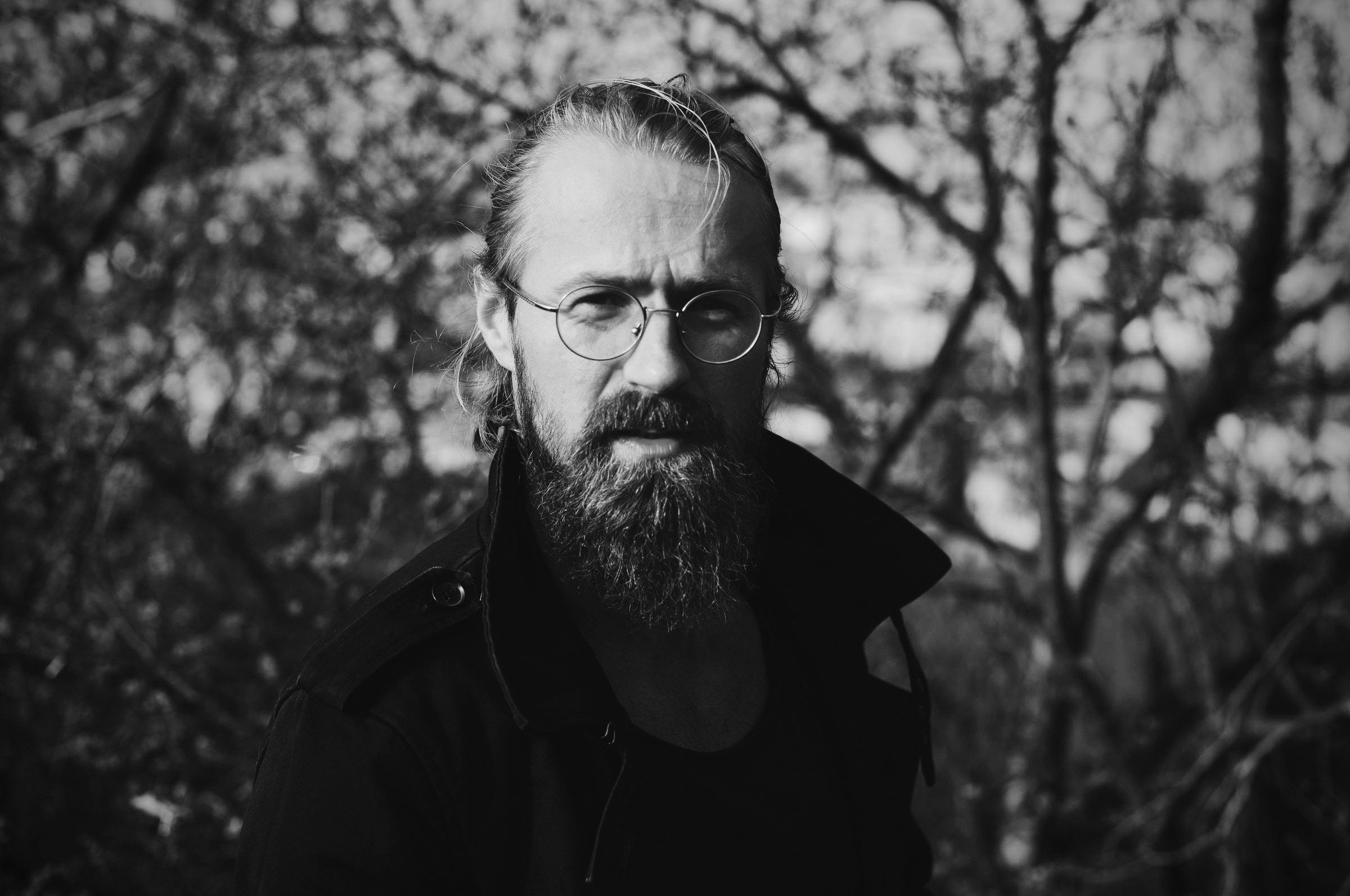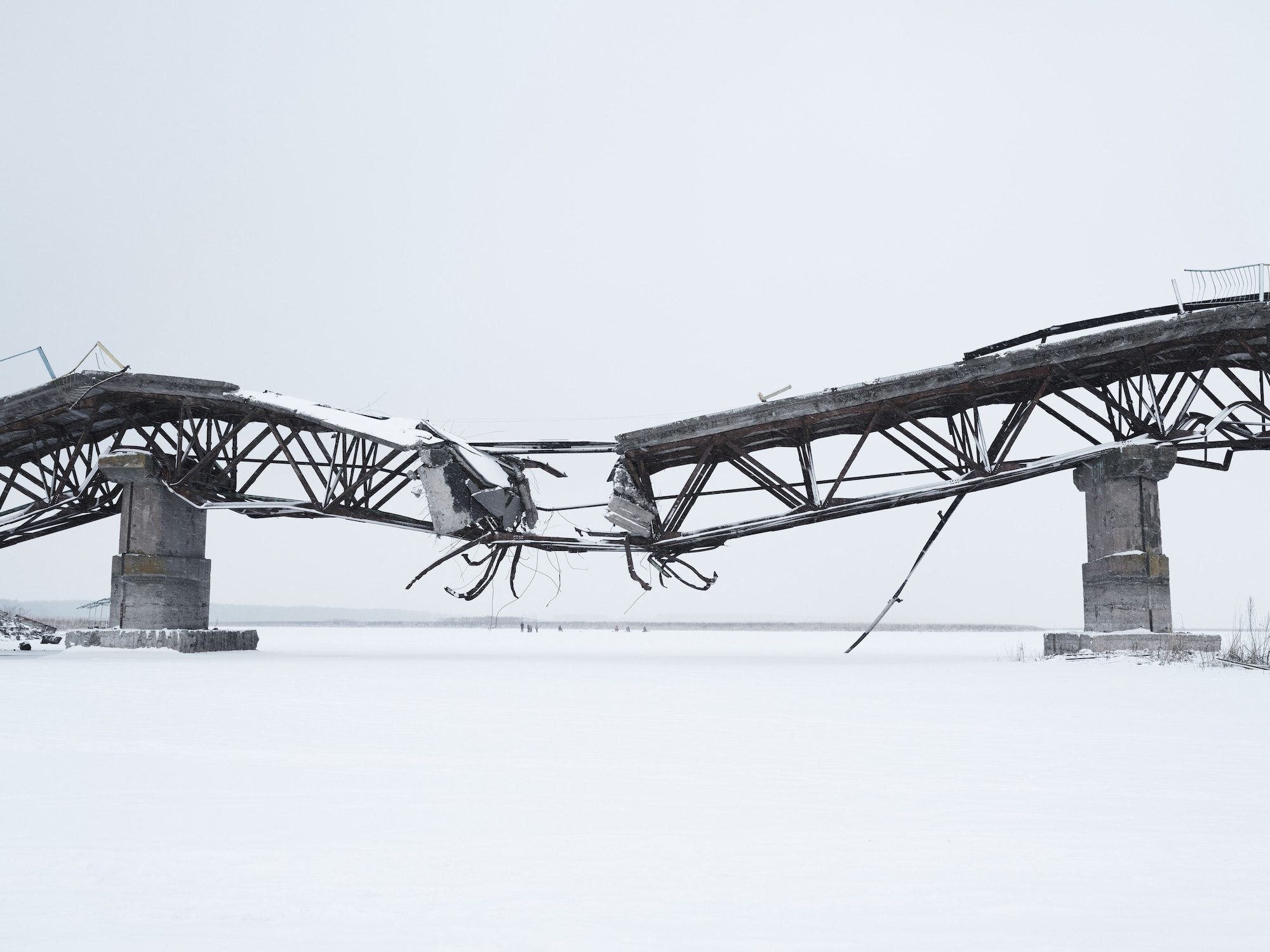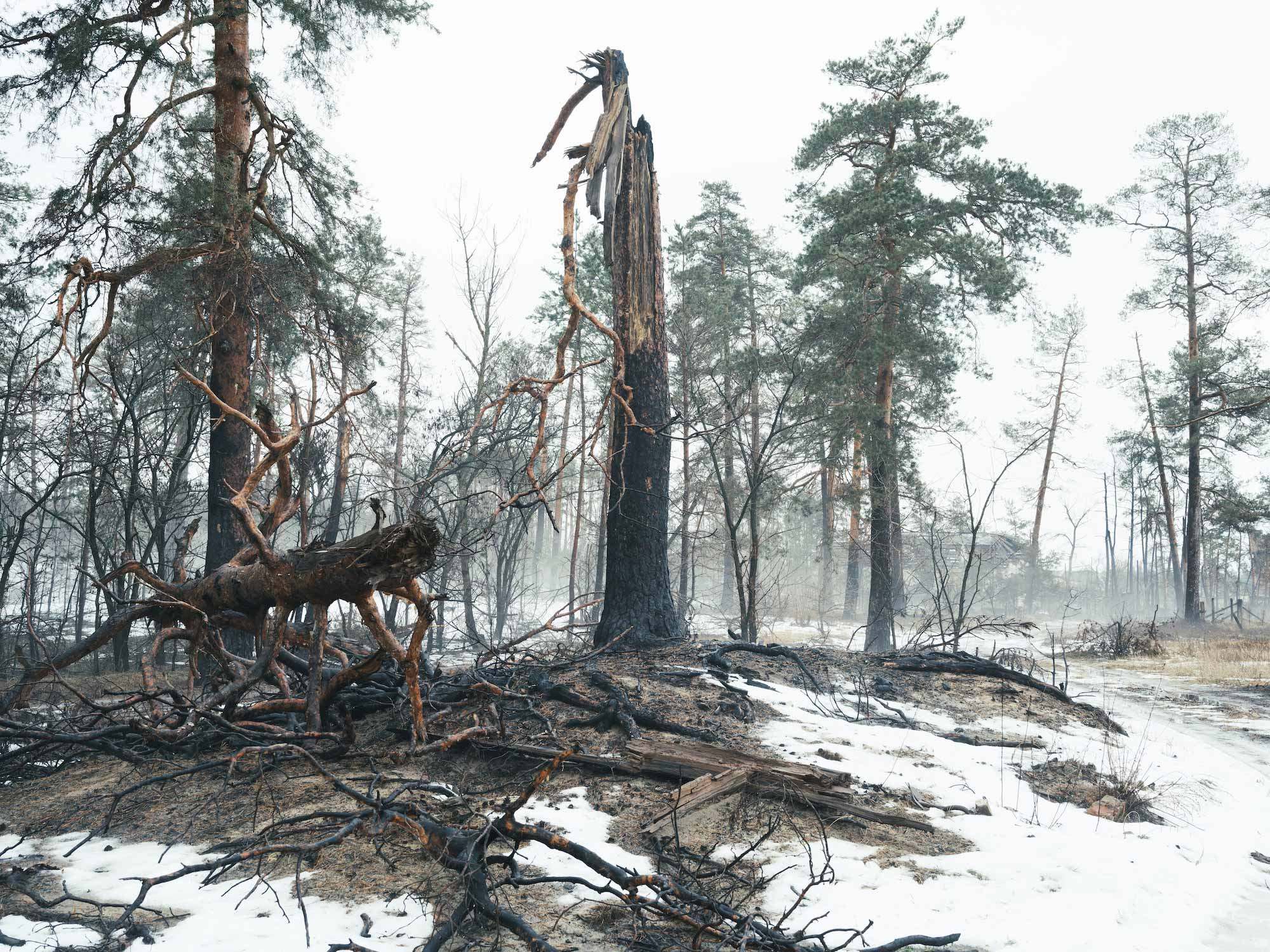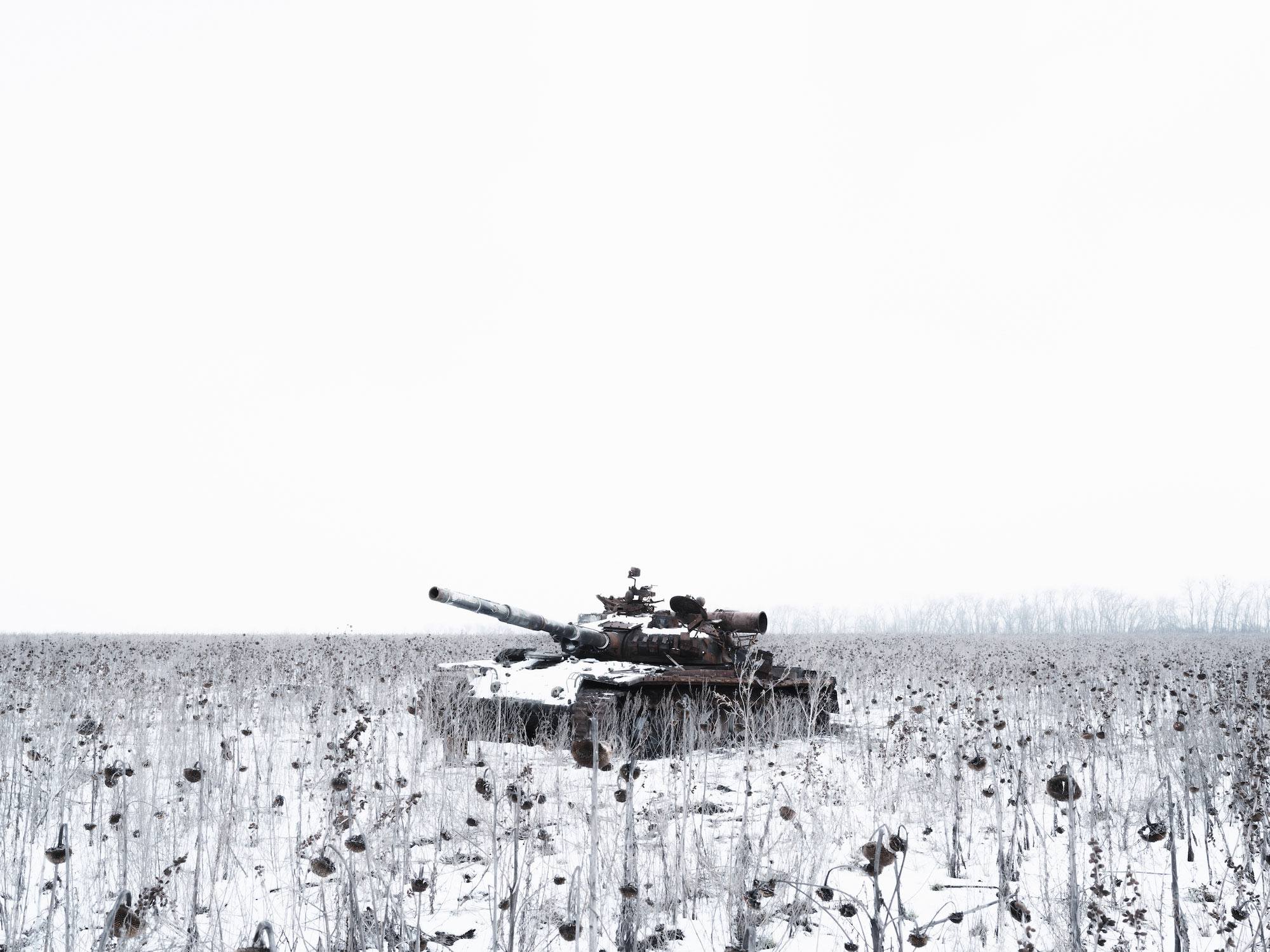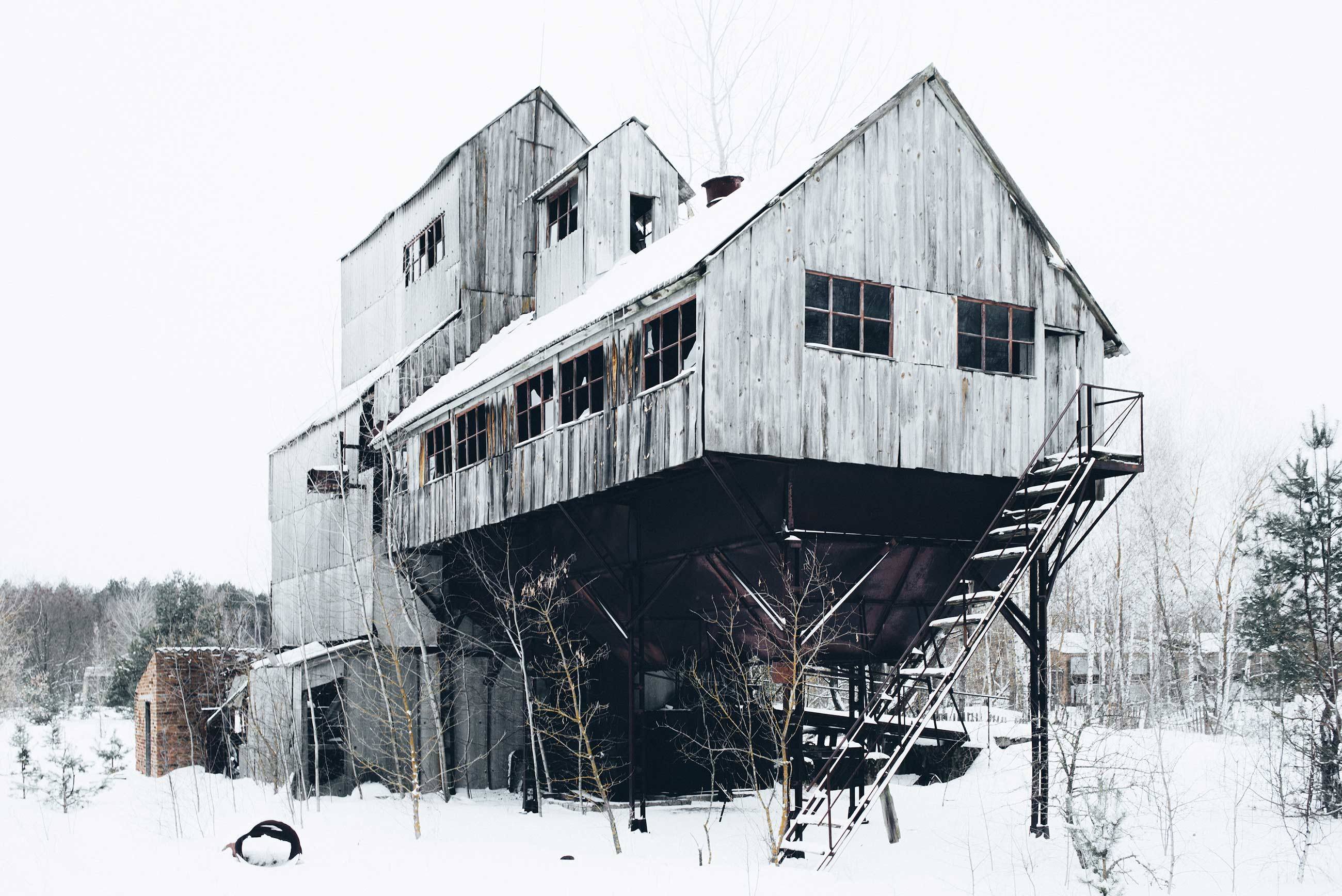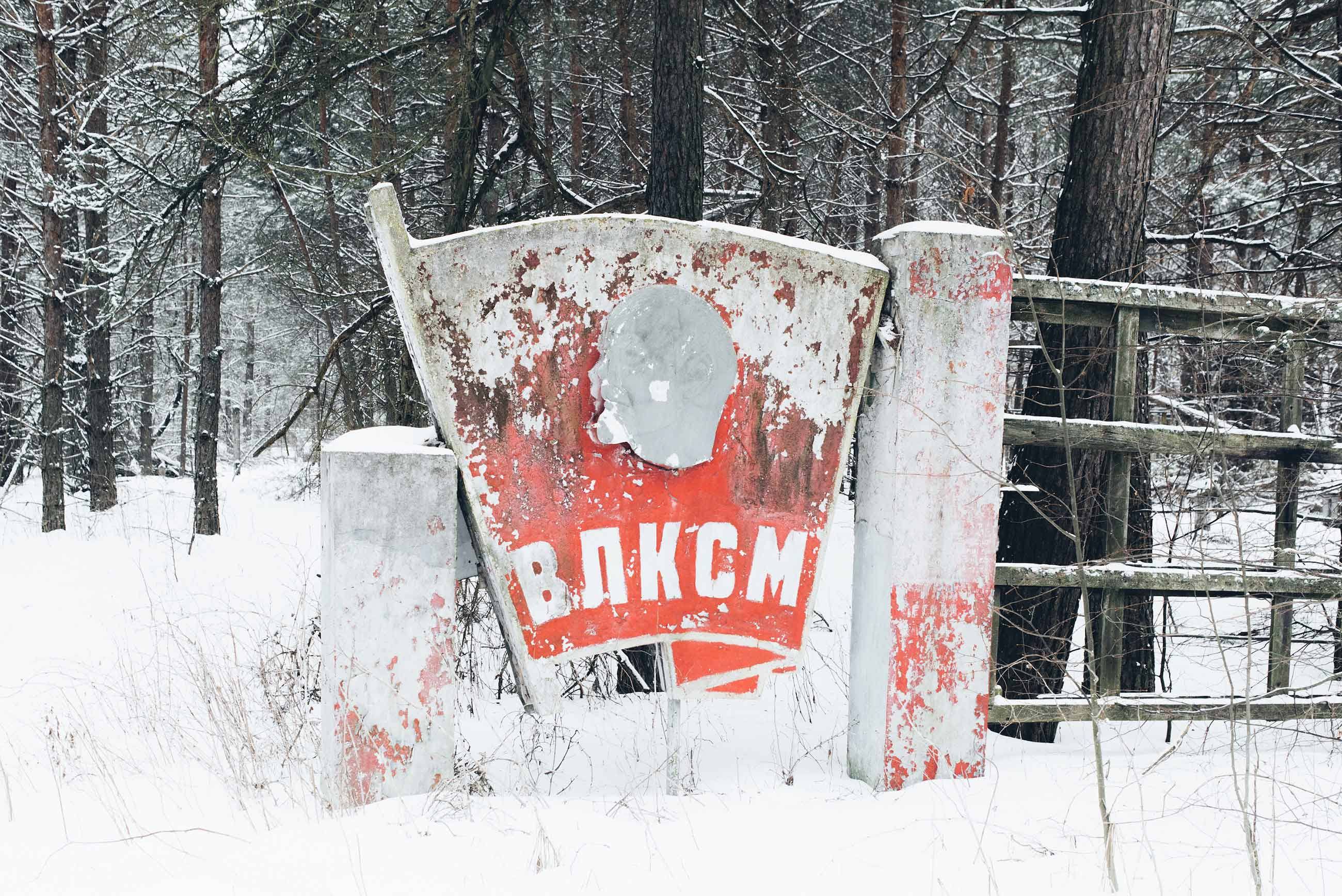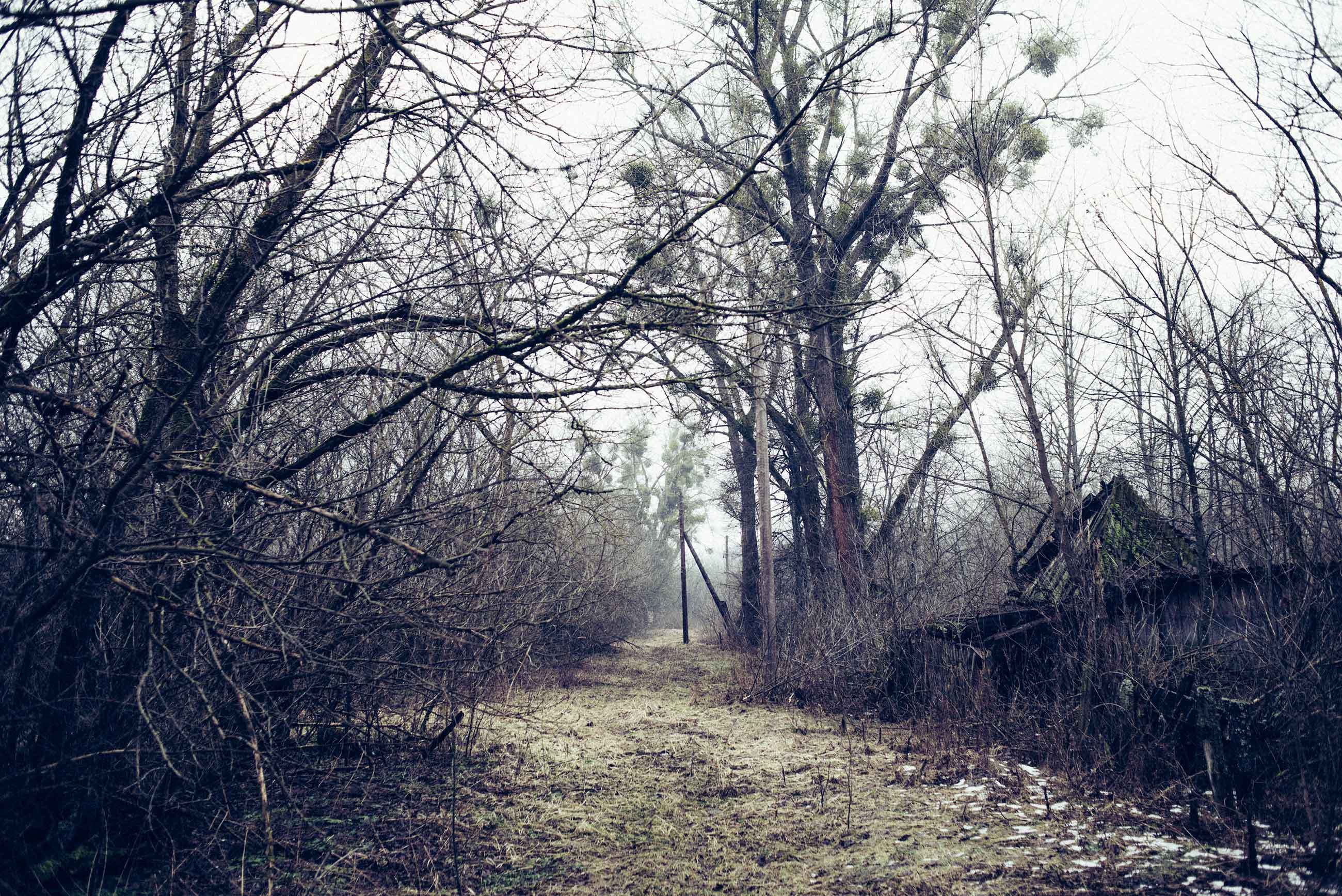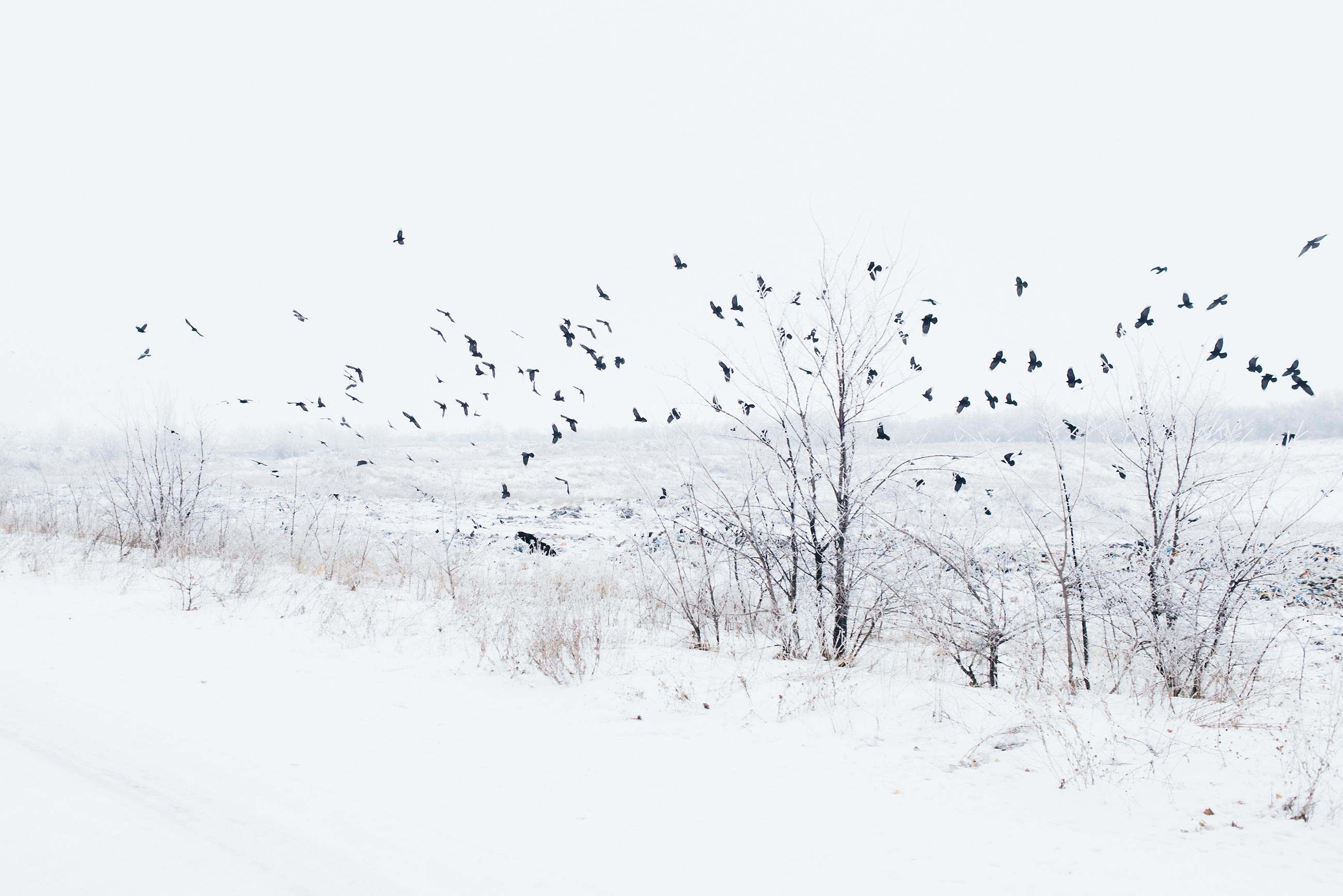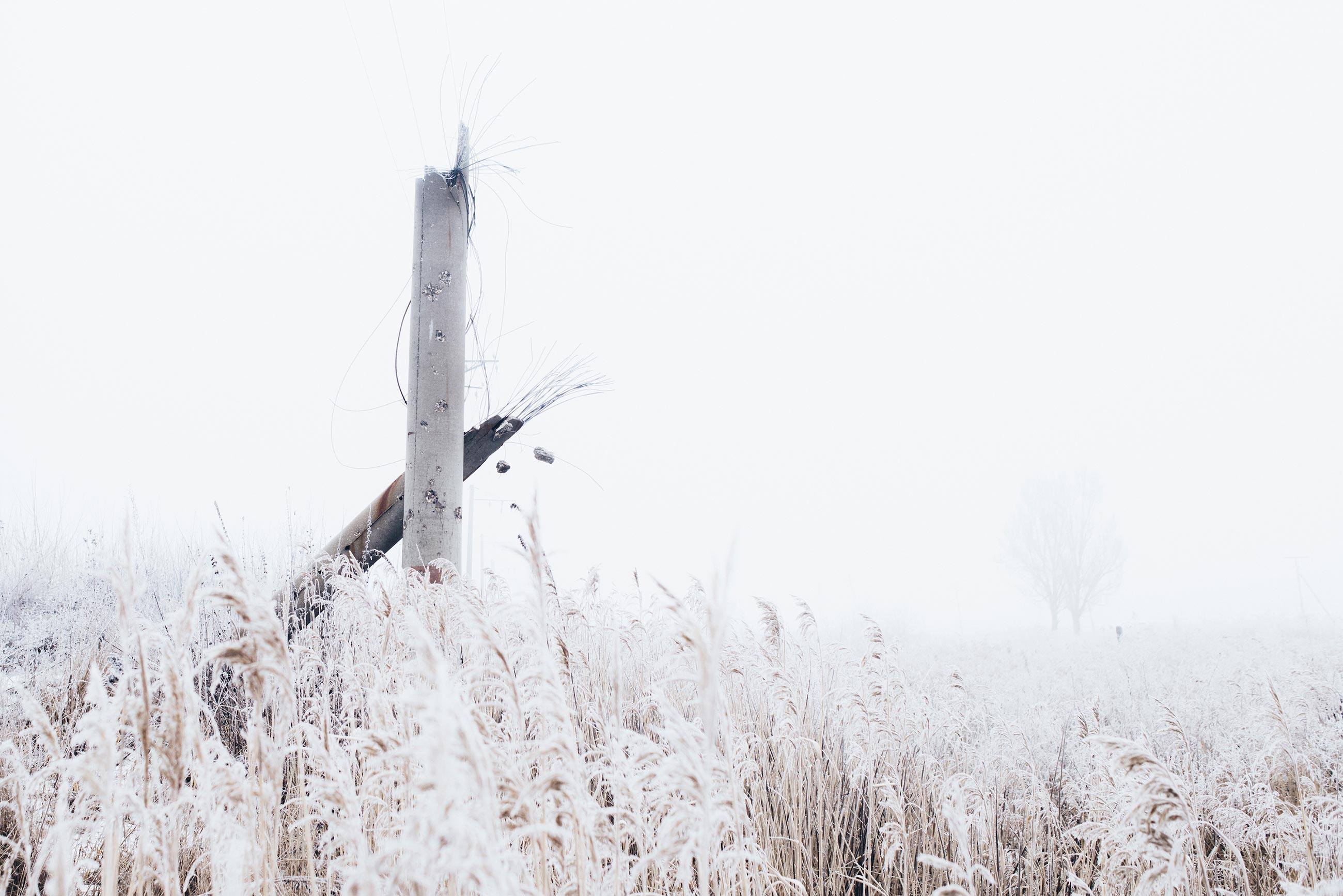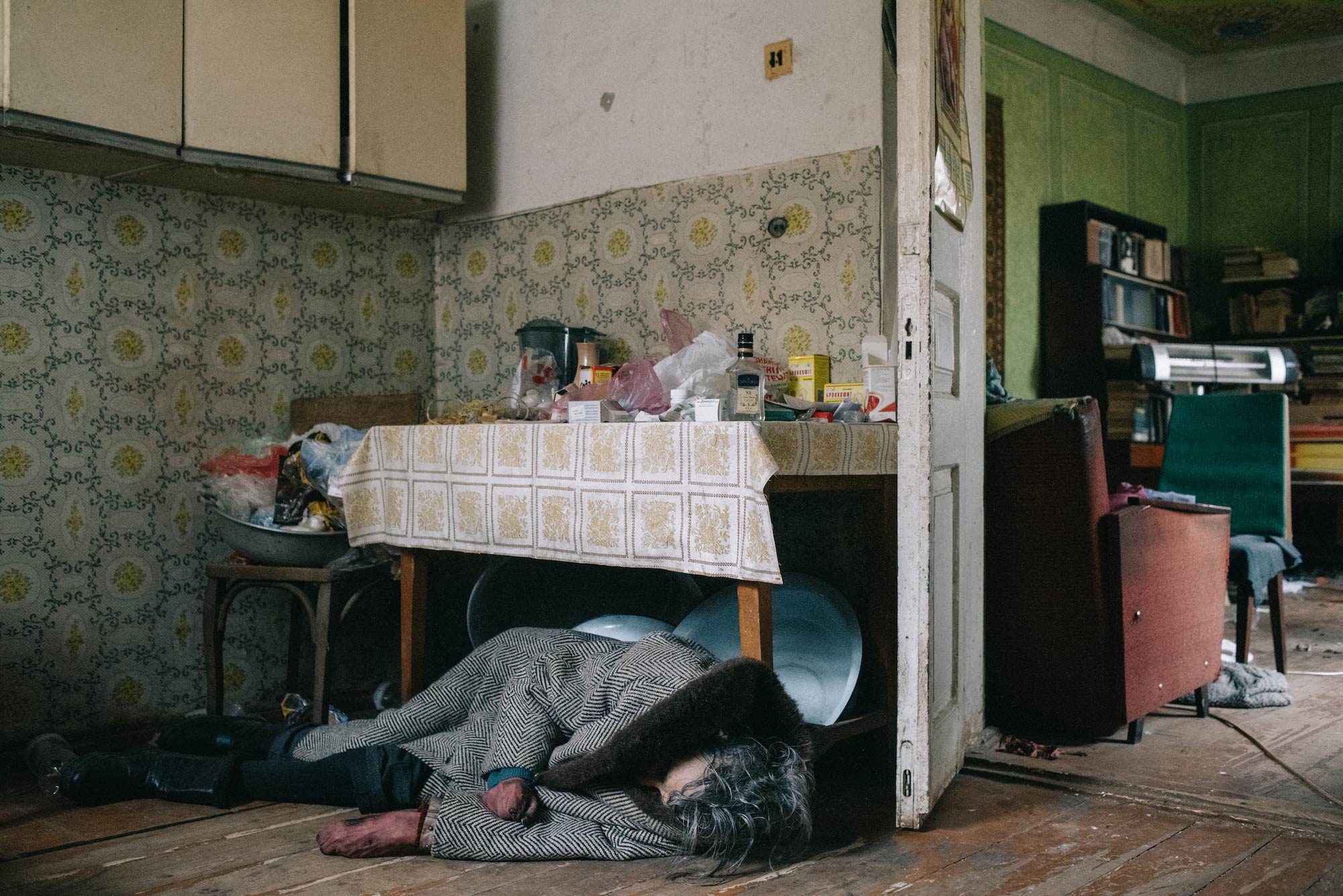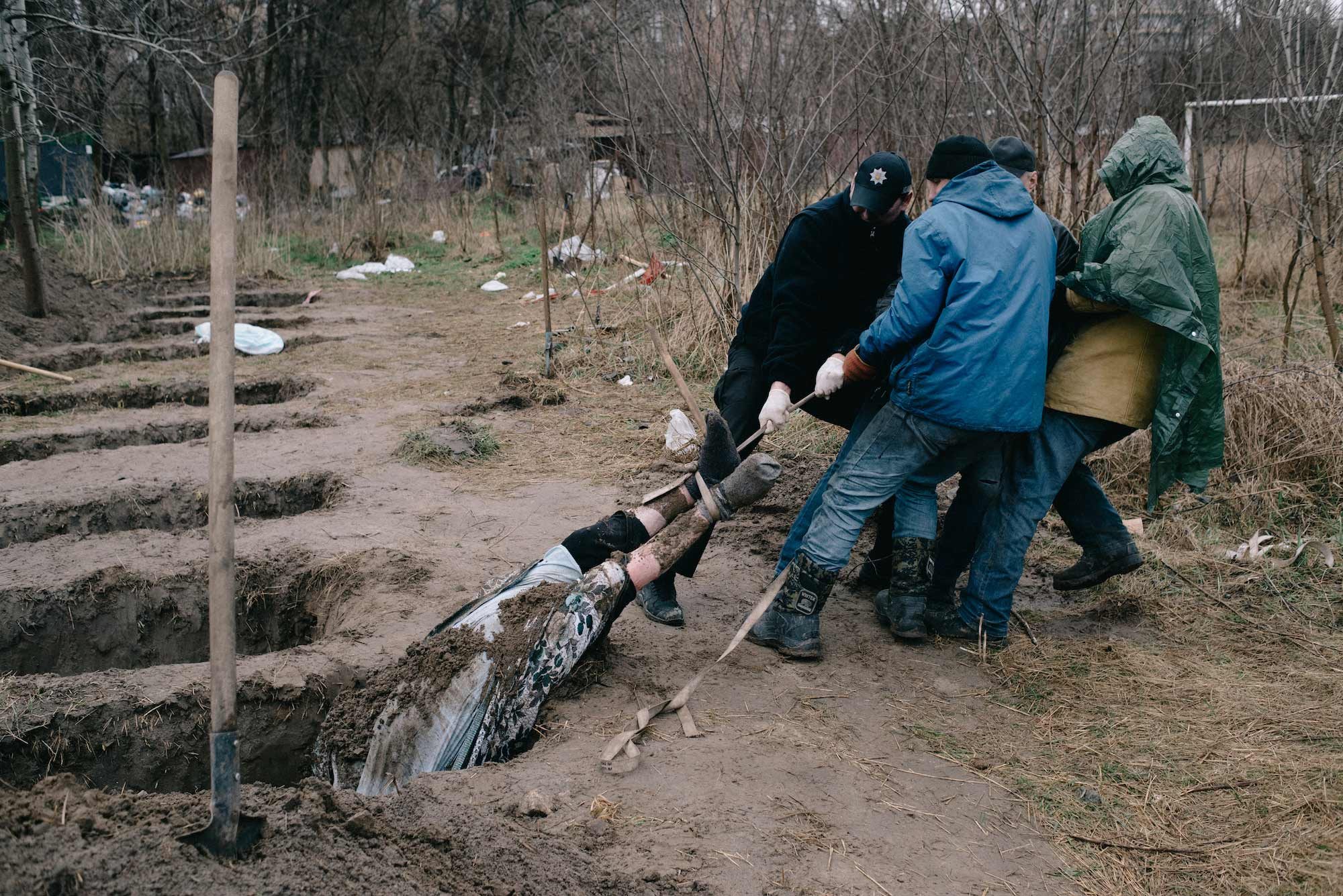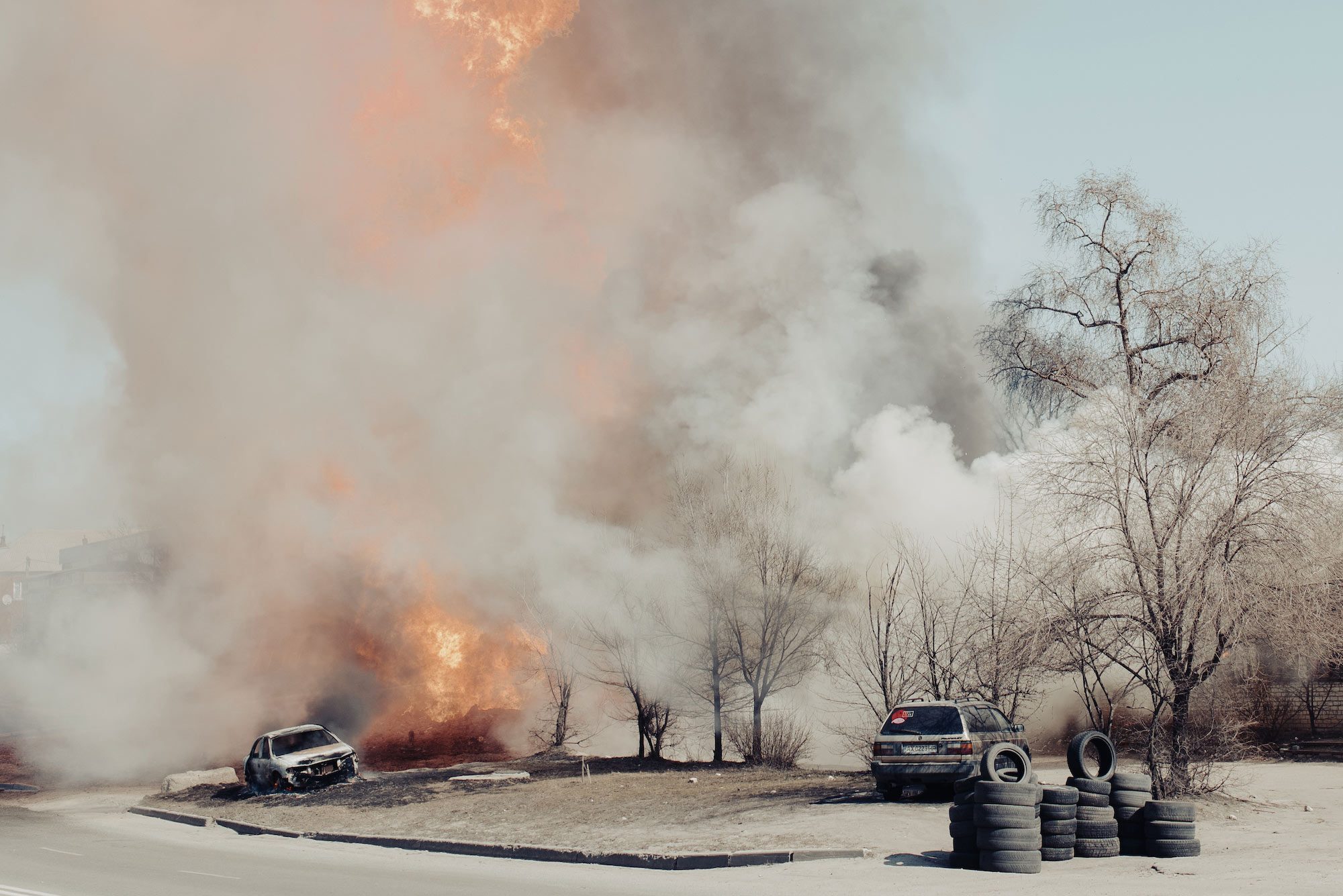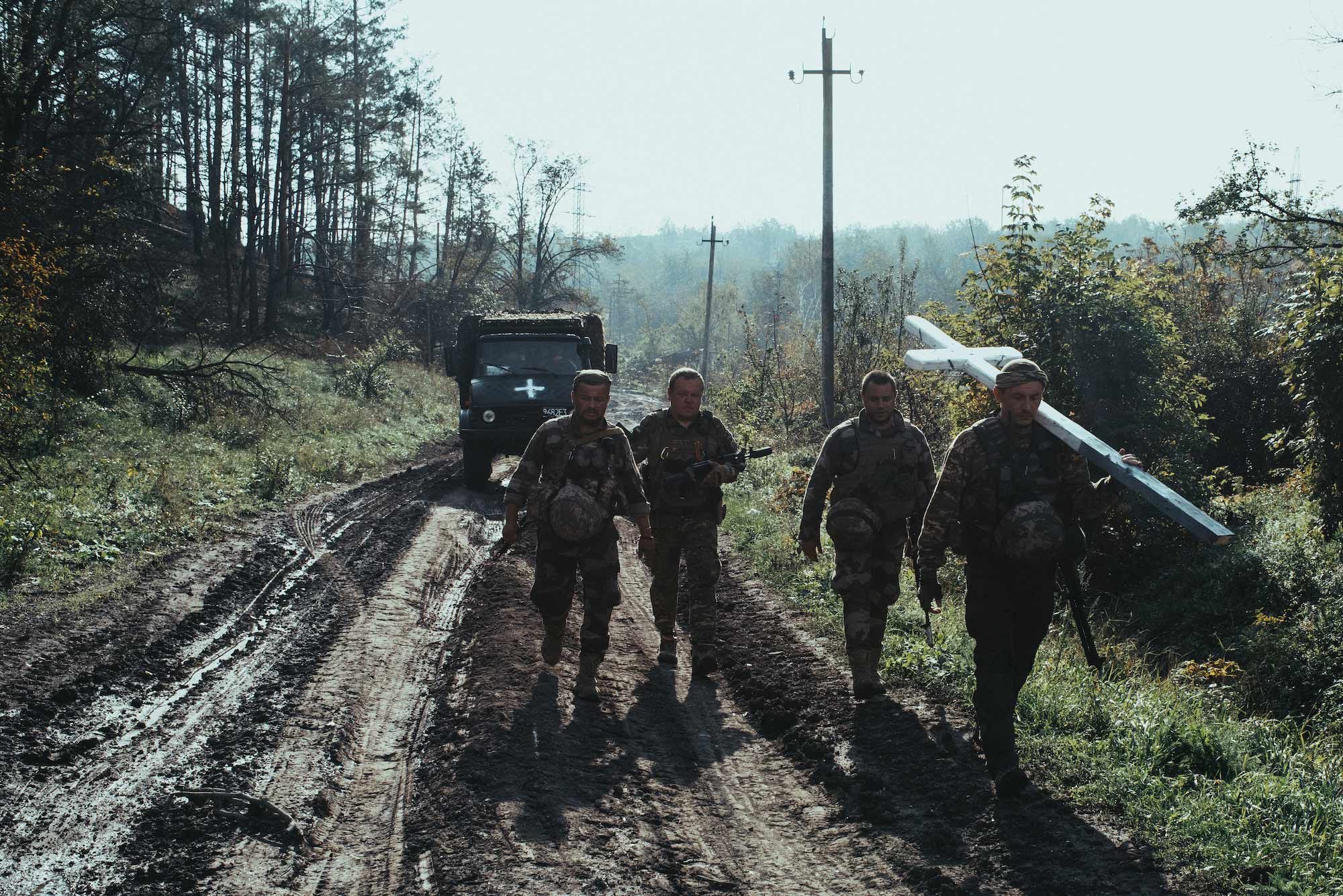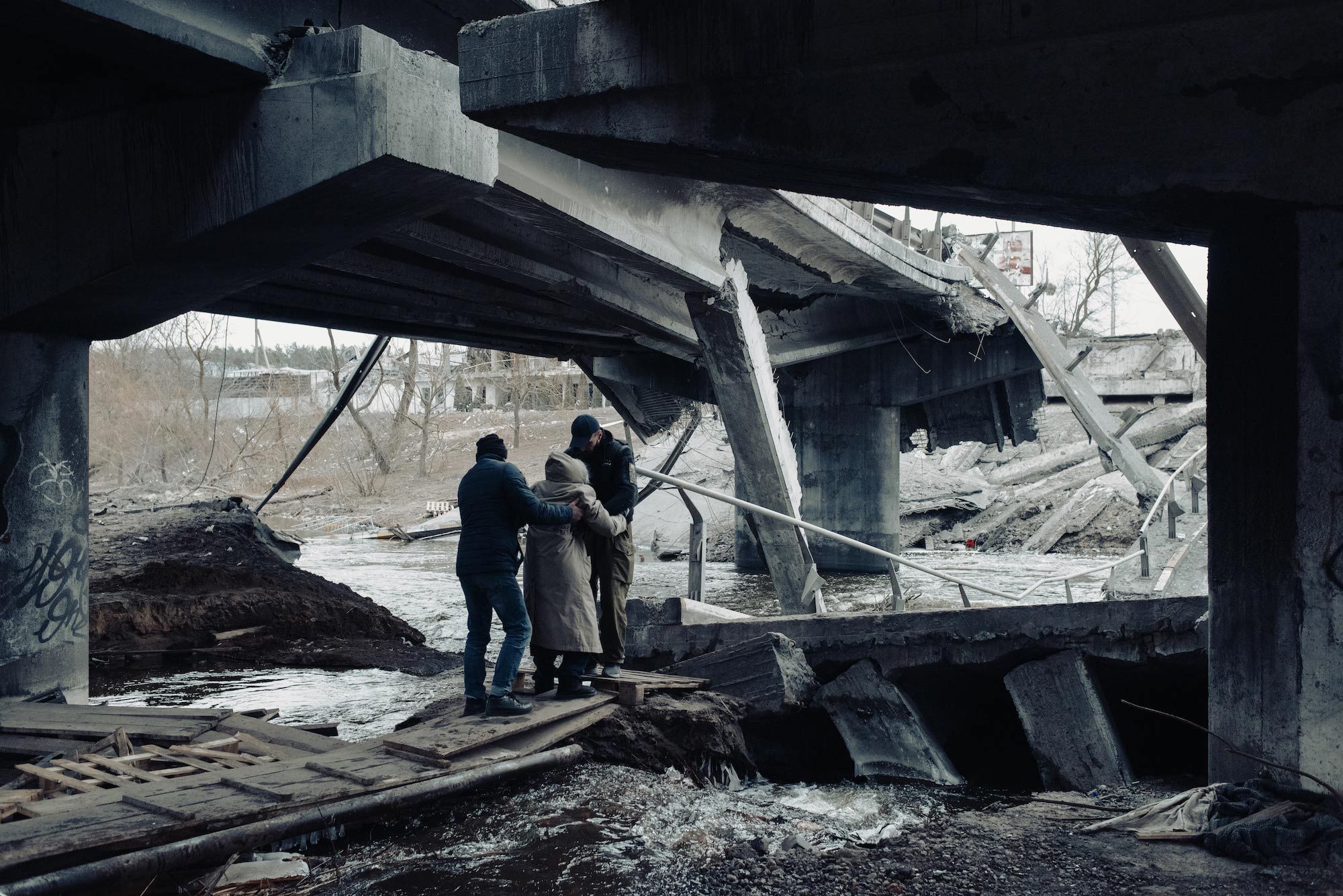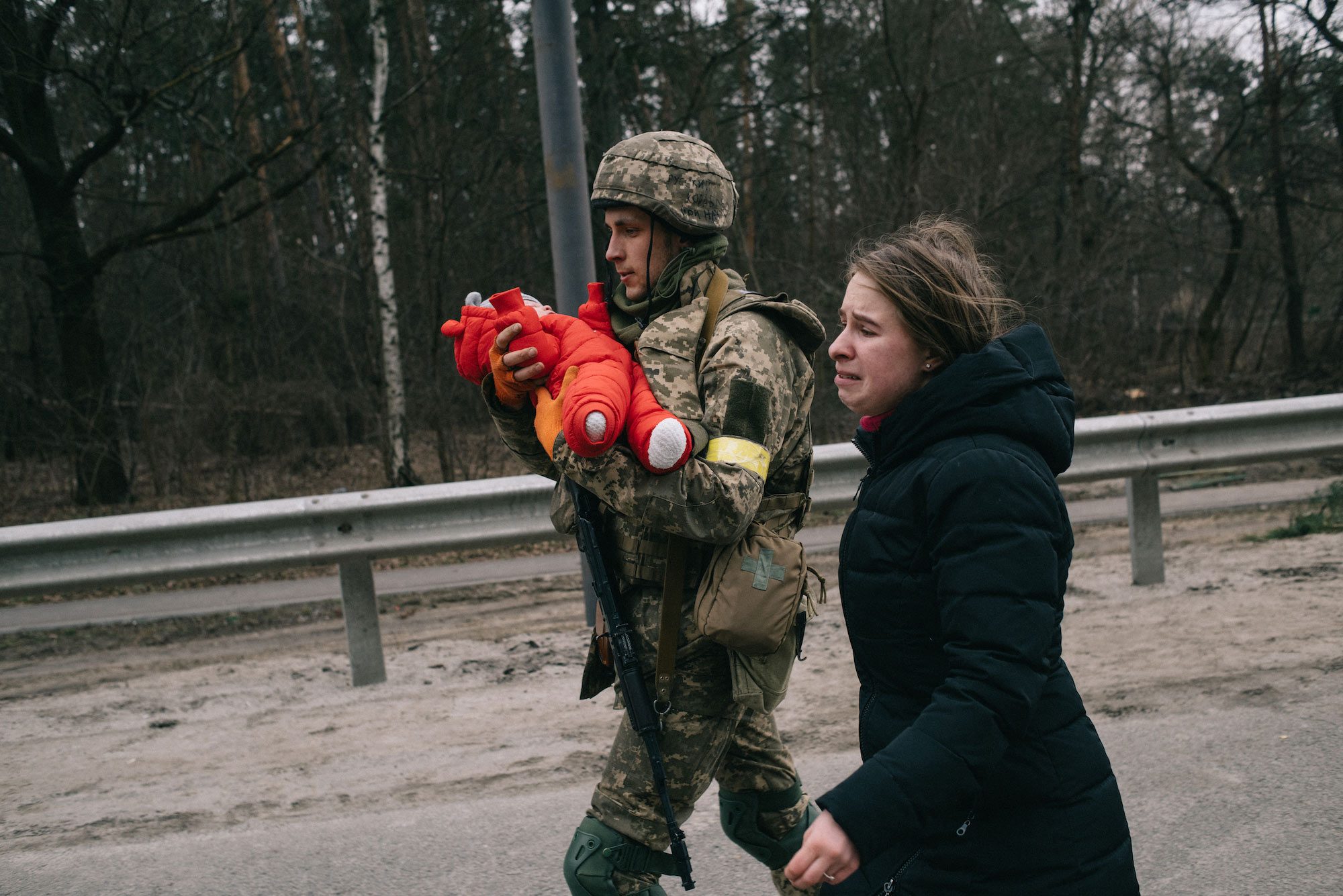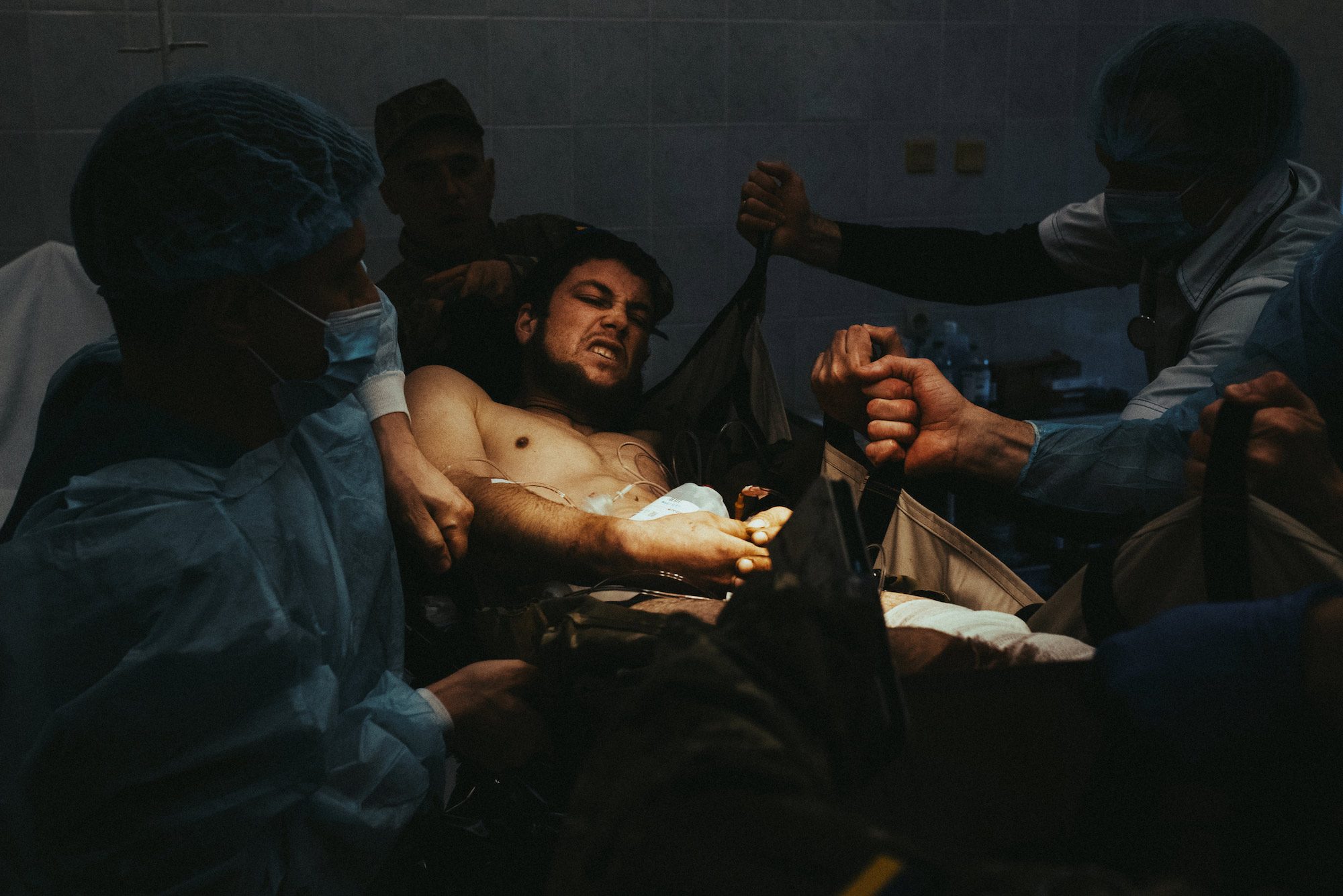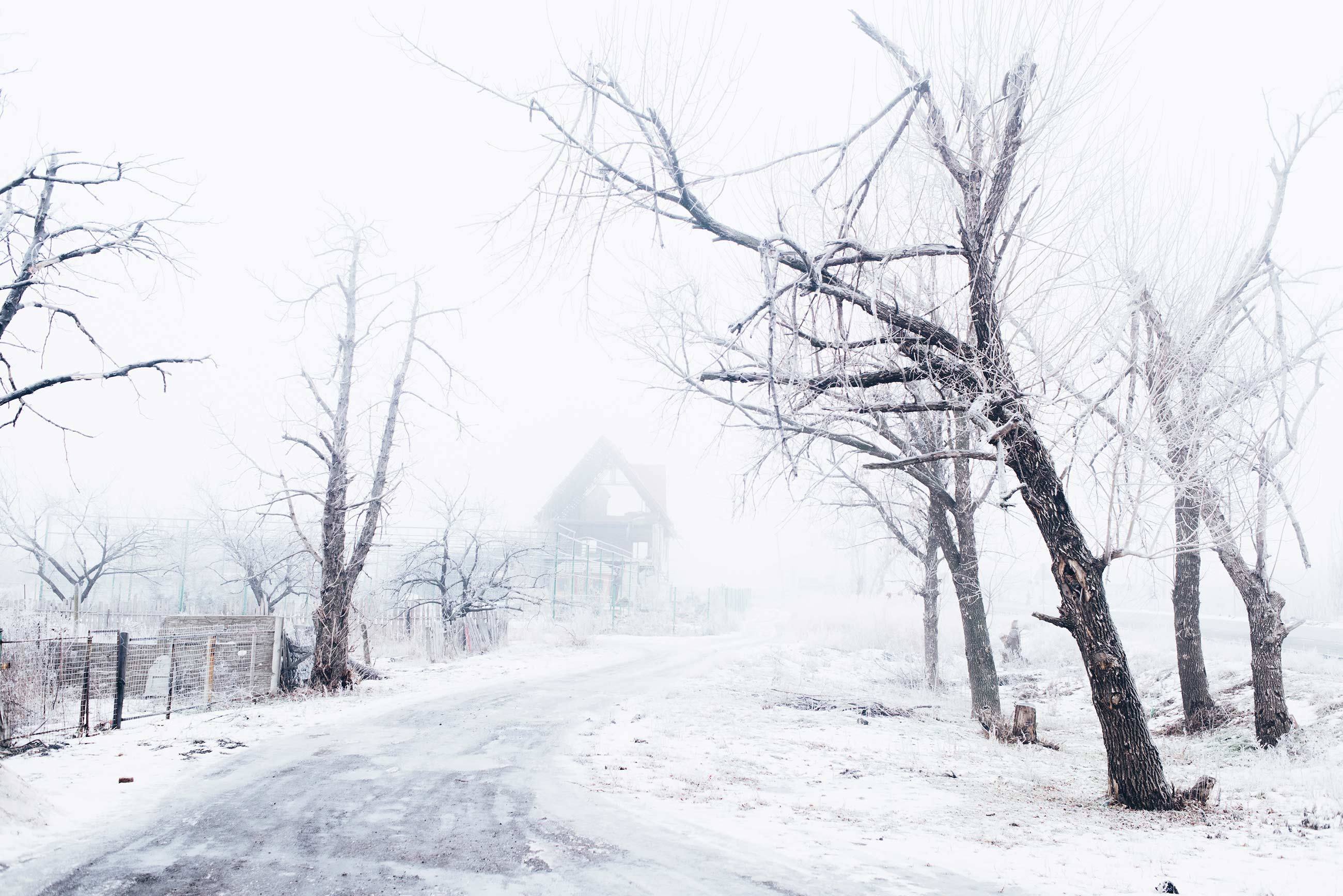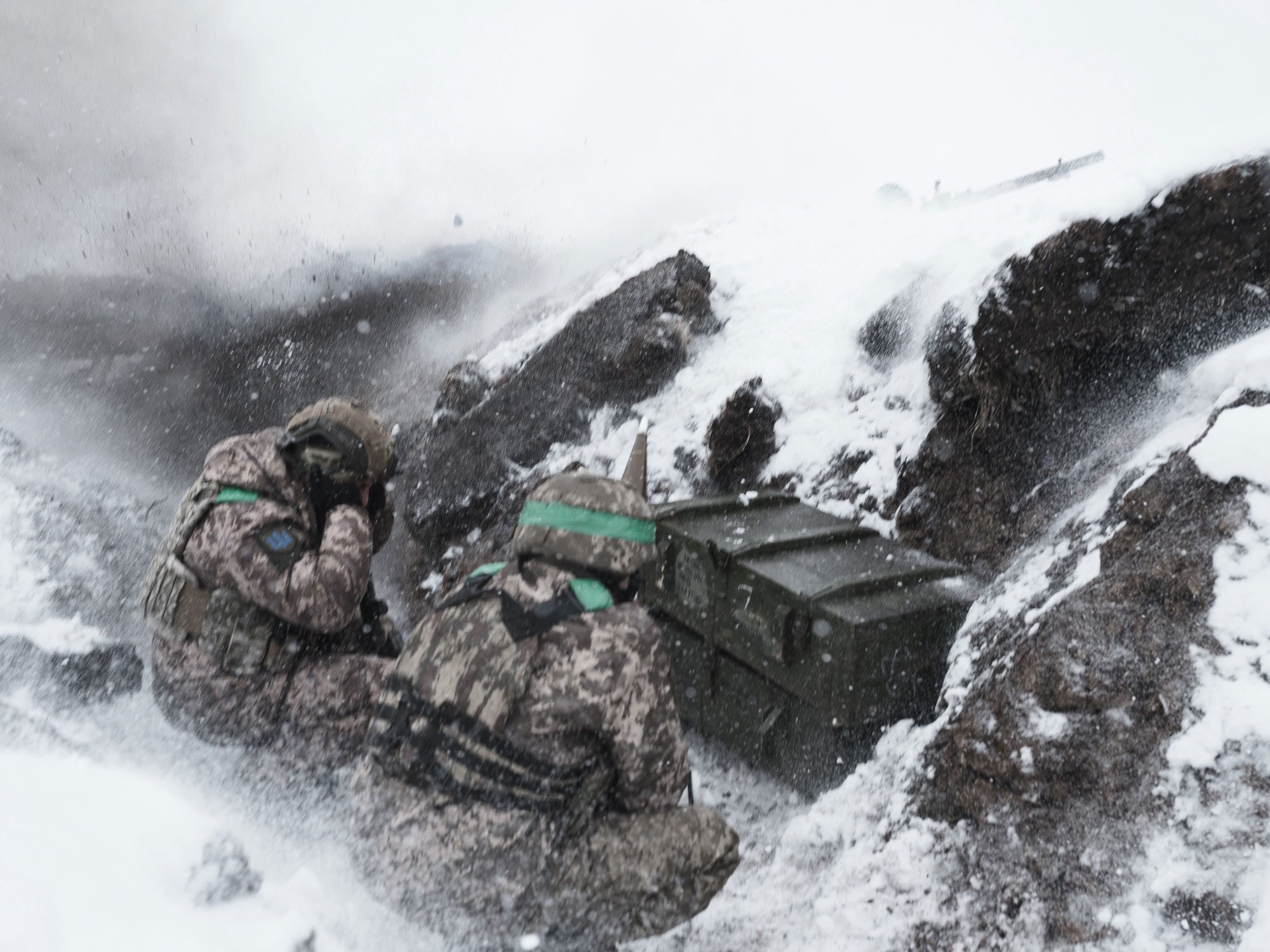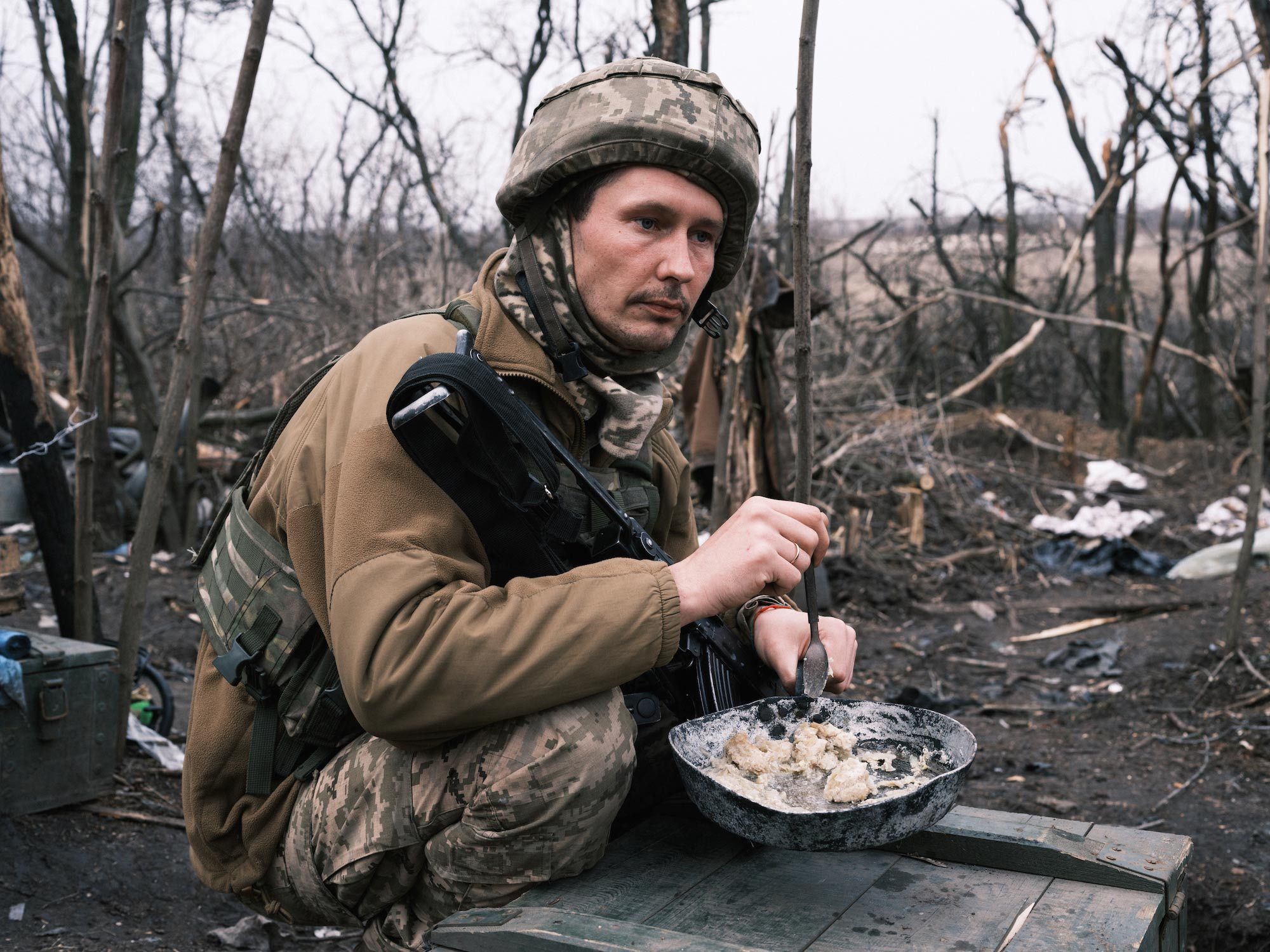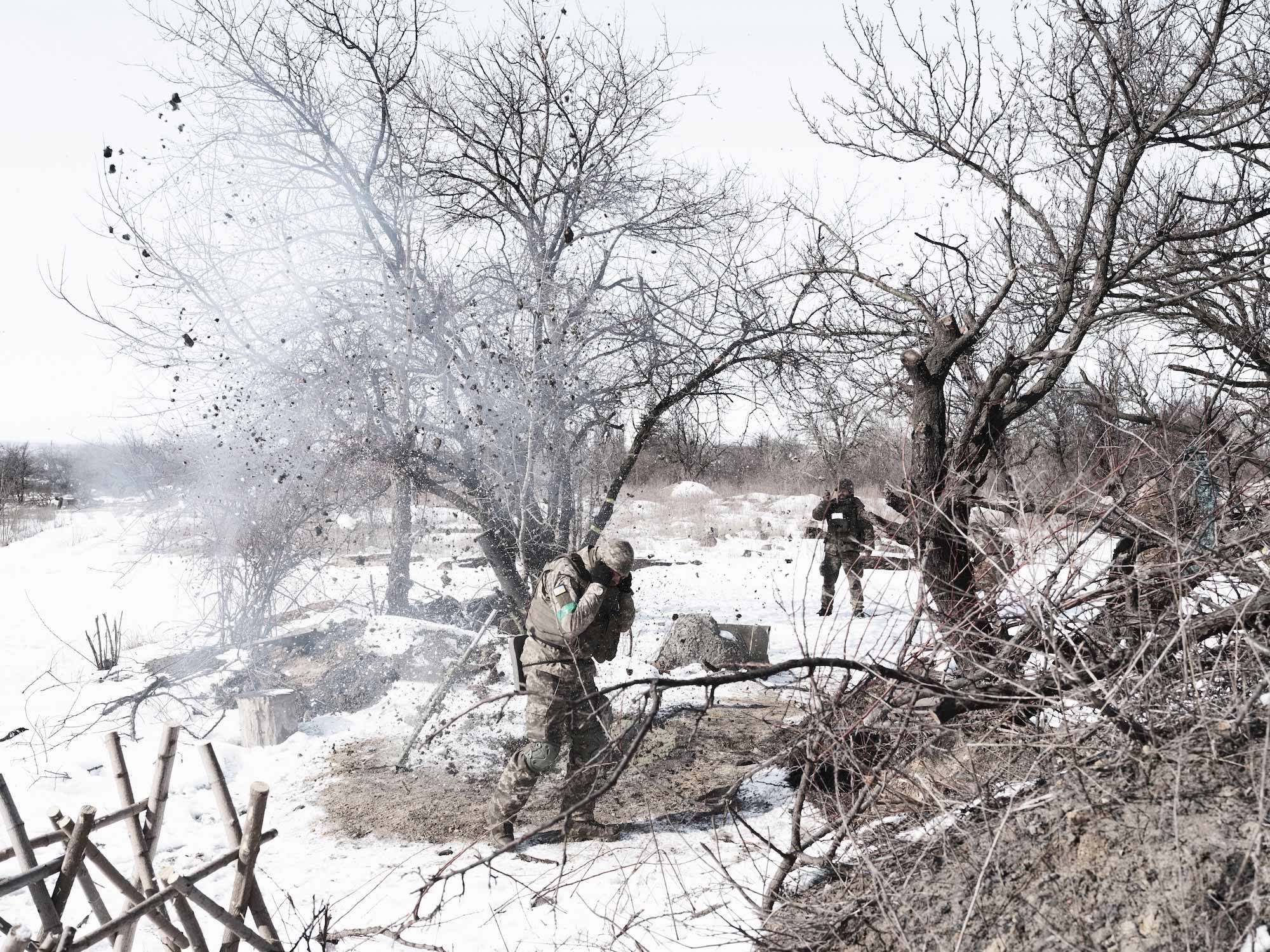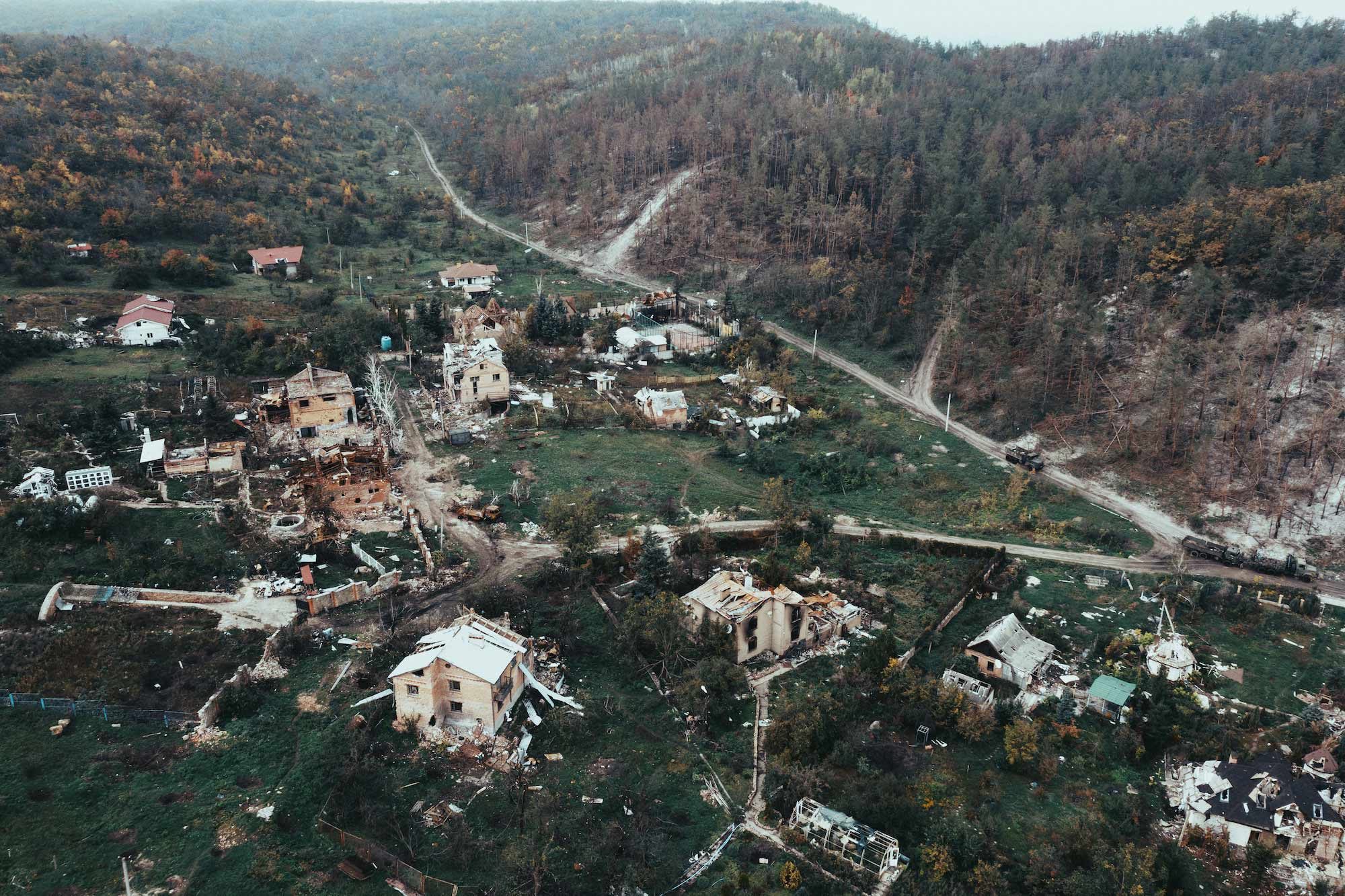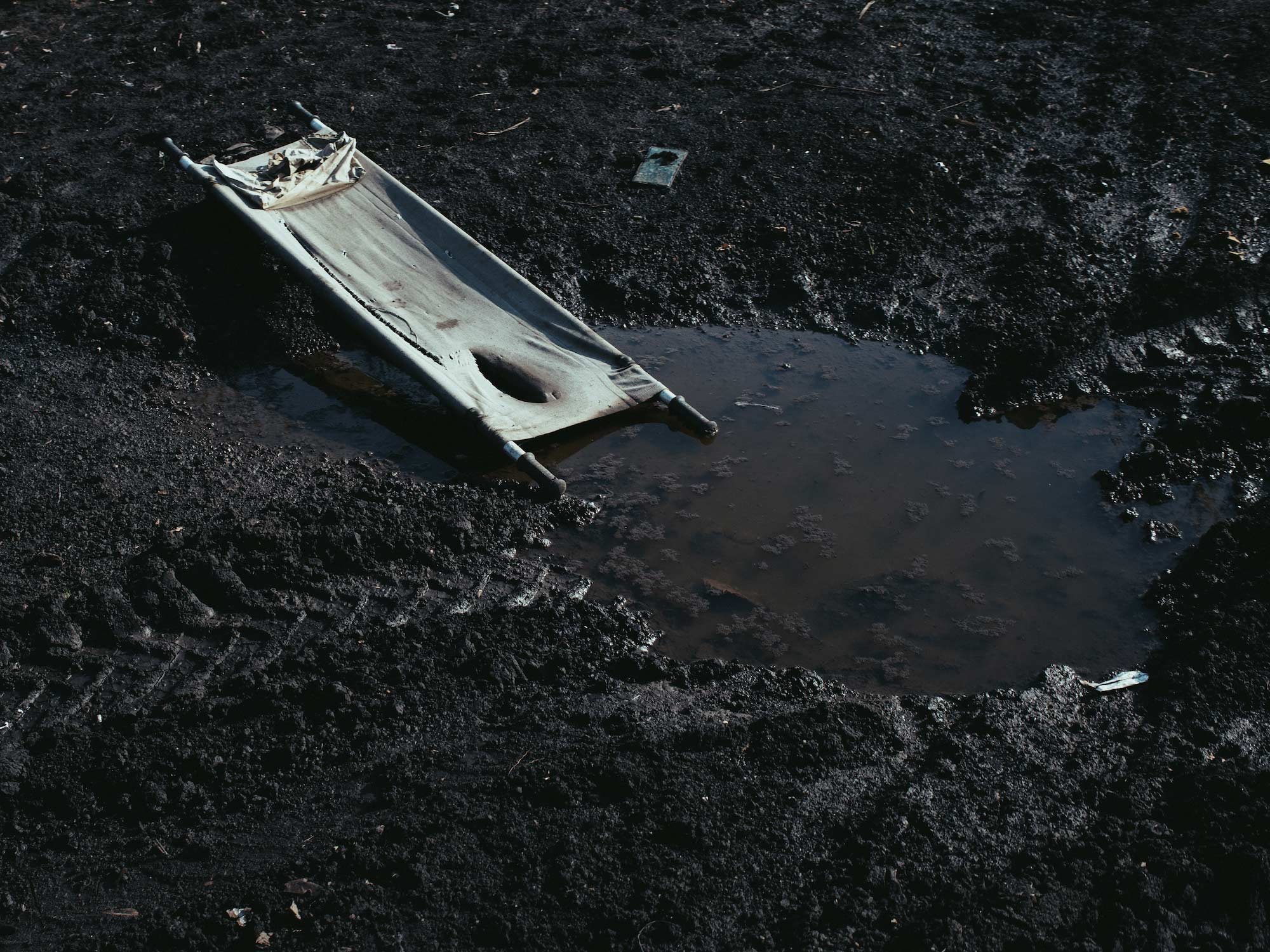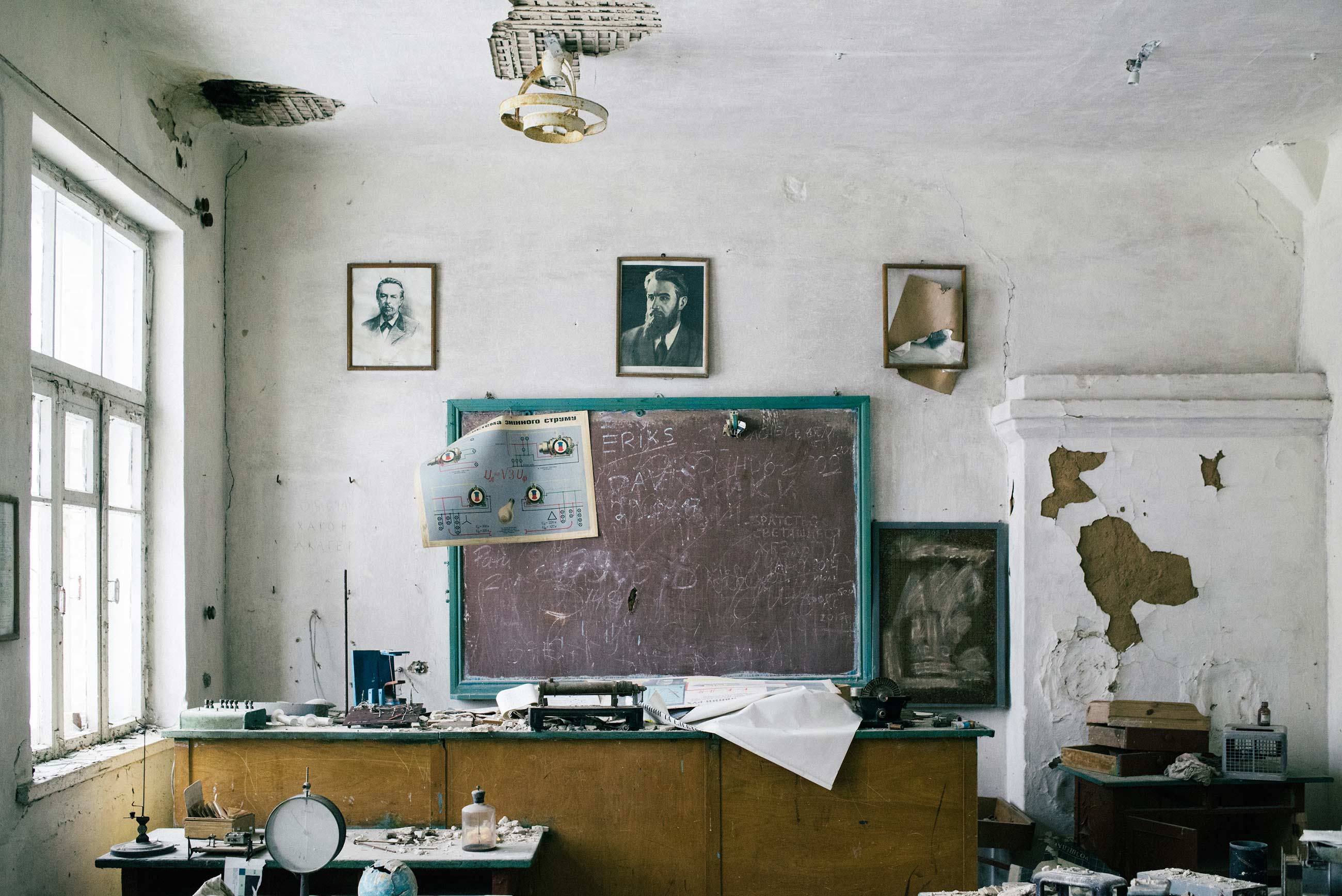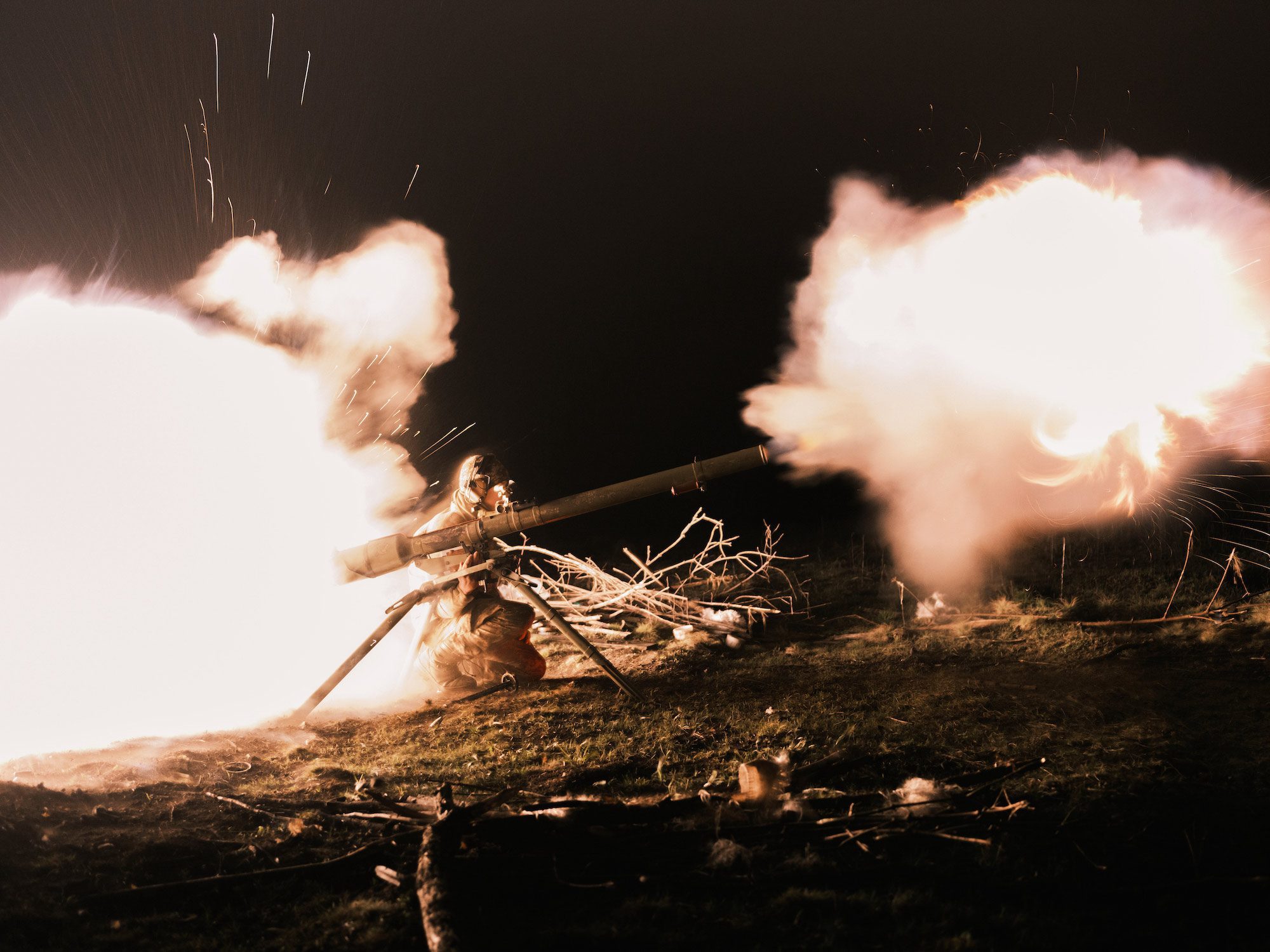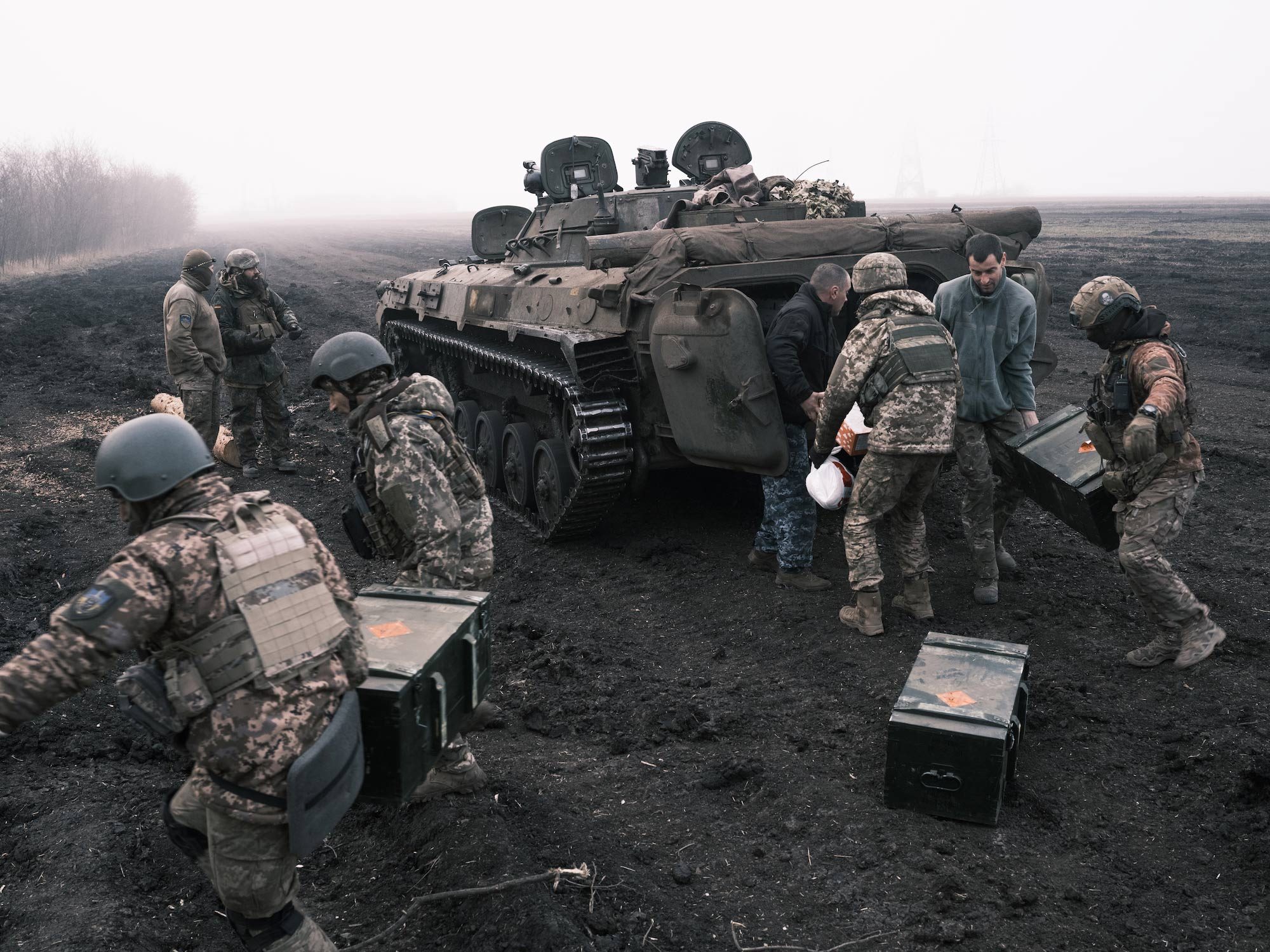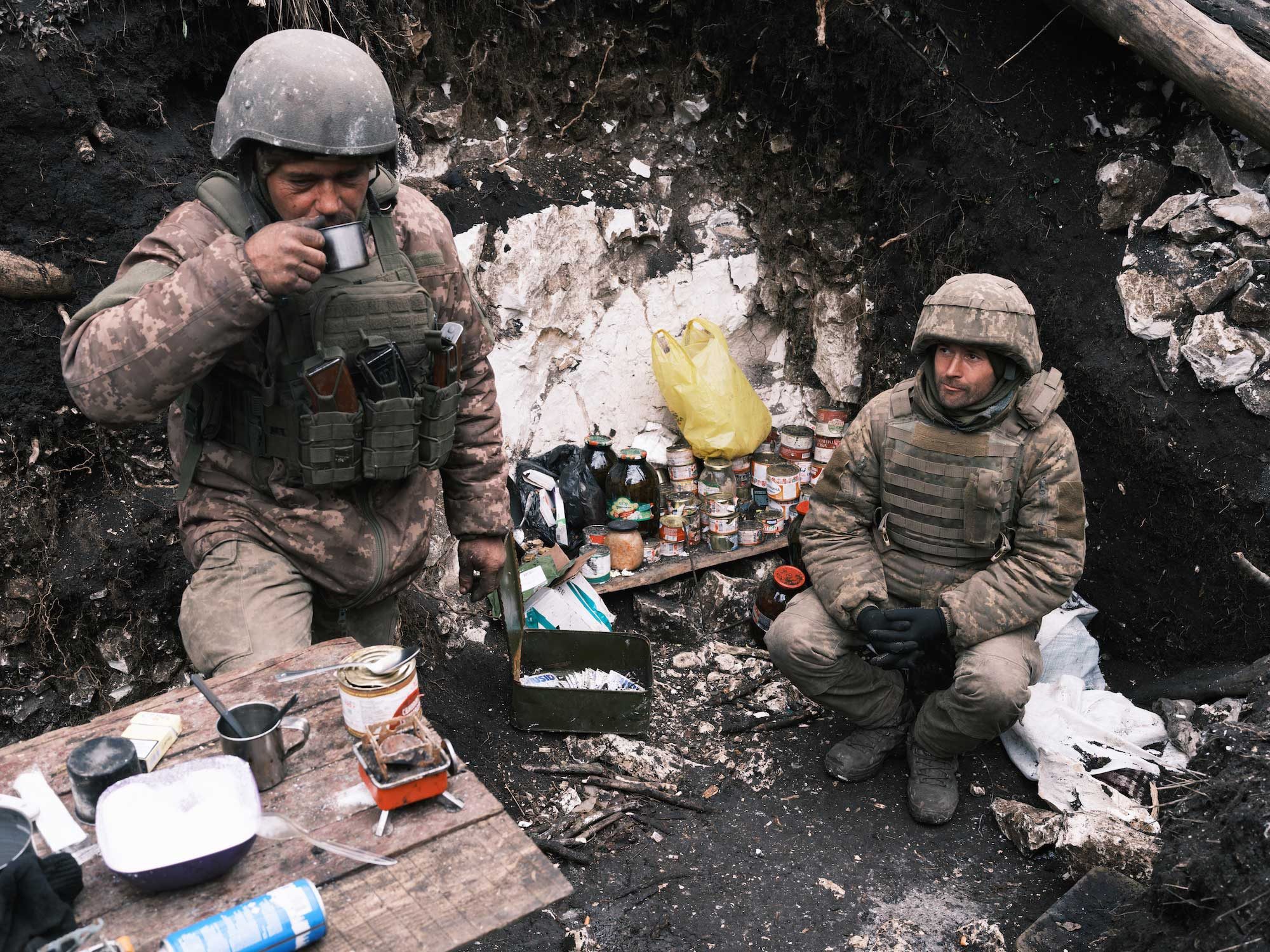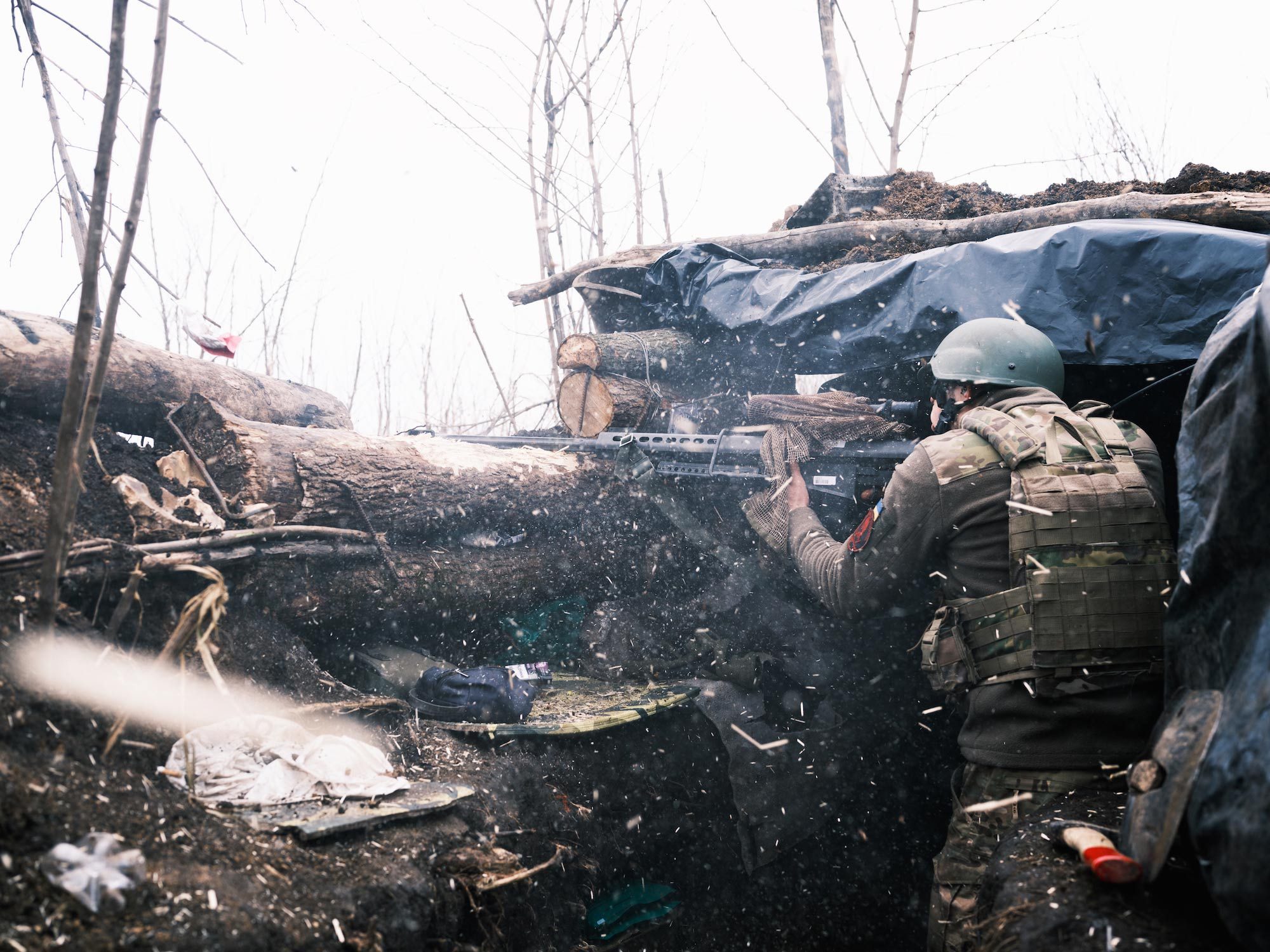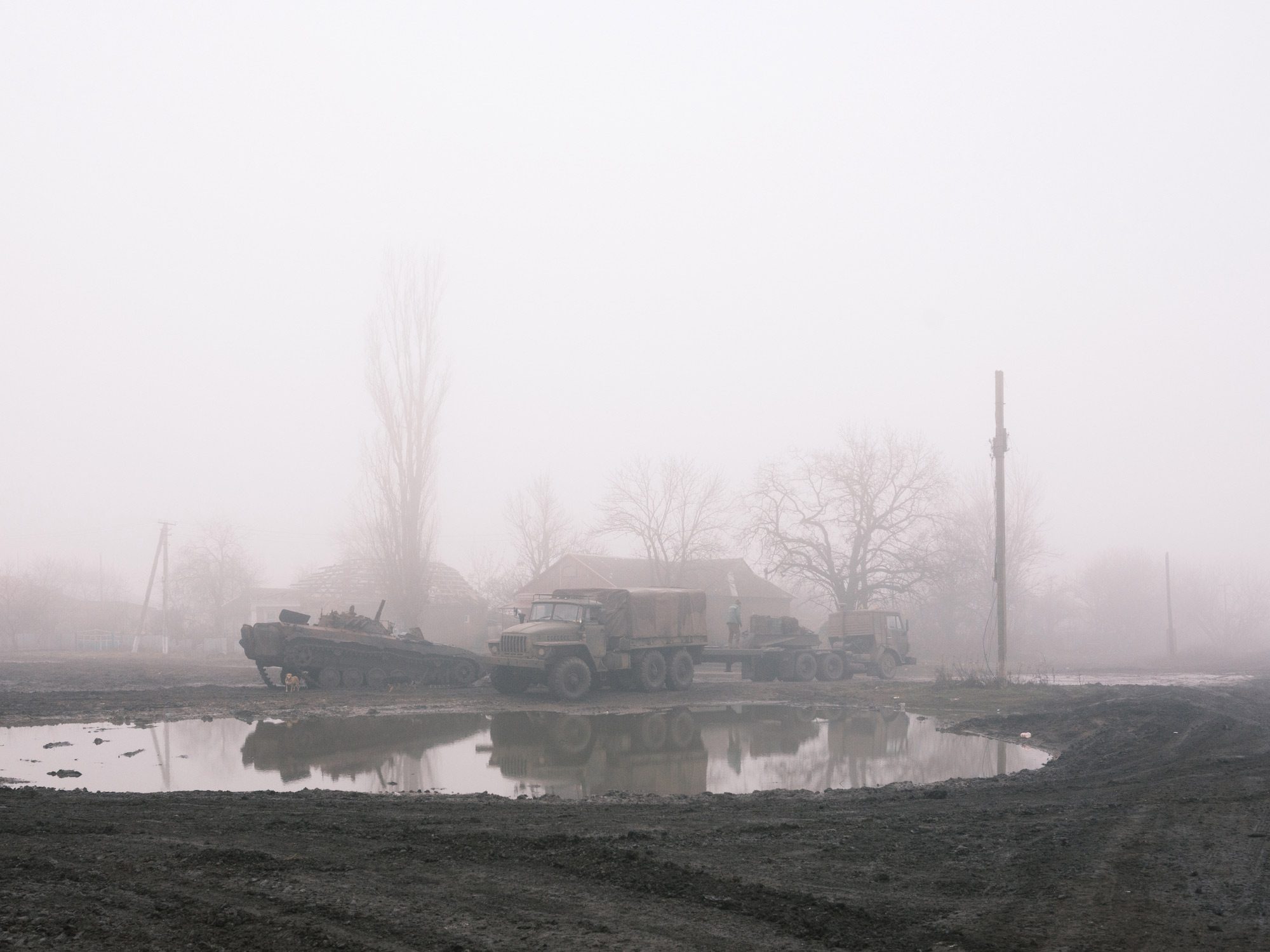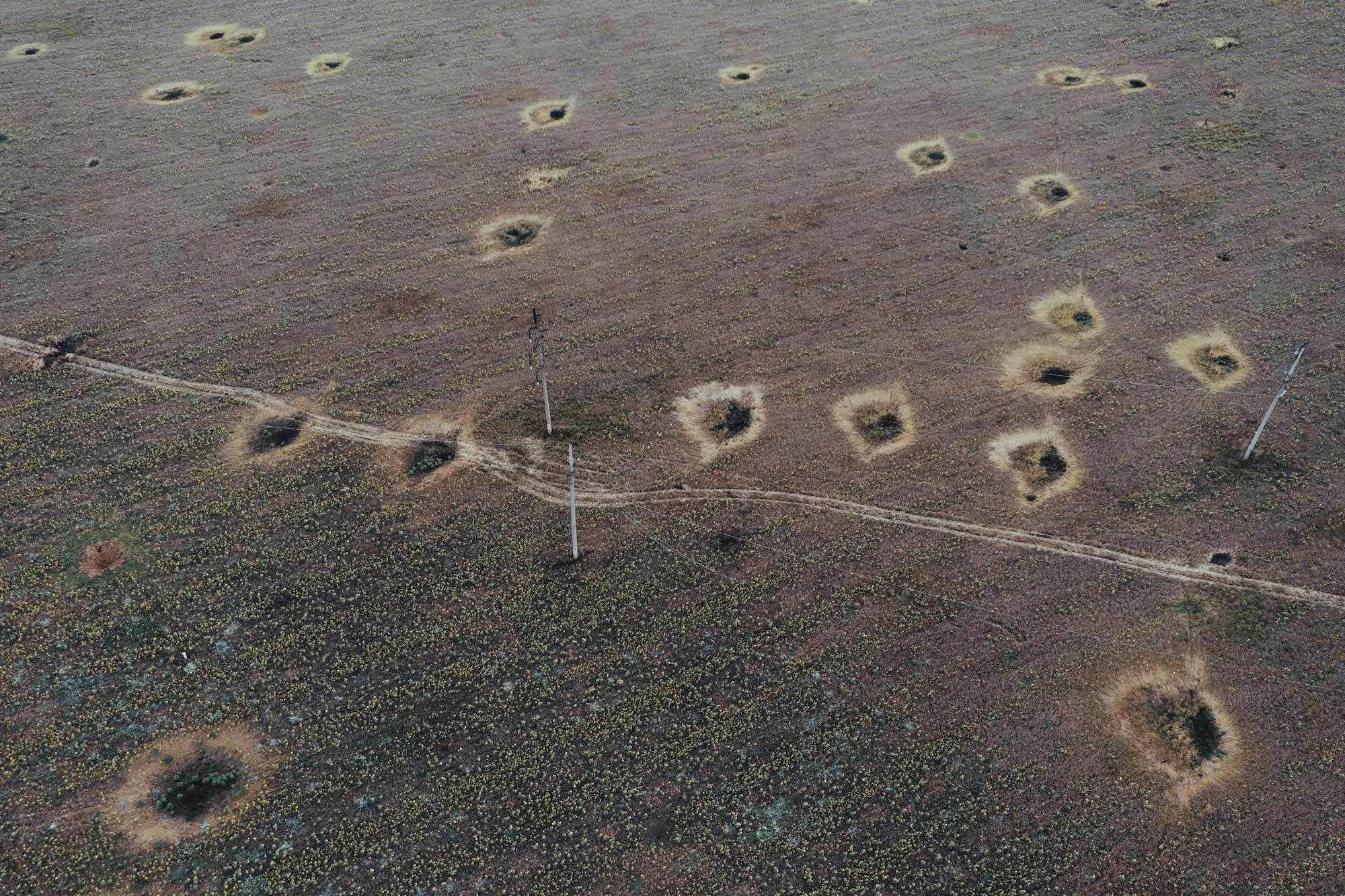“I never expected to end up at war. As a documentarian, I simply followed the events,” says photographer Maxim Dondyuk. He filmed the beginning of the war in Ukraine in 2014 and returned to this thing again with the beginning of a full-scale invasion. During this time, the photographer visited many hot spots — these business trips left a bitter aftertaste. In particular, due to conflicts with press officers, the military press service threatened Dondyuk with deprivation of accreditation. From March 2023, he was banned from traveling abroad to participate in professional exhibitions.
Zaborona’s visual storytelling producer Ivan Chernichkin spoke with Maxim Dondyuk about military censorship in Ukraine, the inferiority complex that causes Ukrainian photographers to be neglected during the war, why Volodymyr Zelenskyi’s press secretary was offended by the documentarian, and how he ended up spending two weeks in positions AFU for the article in The New Yorker.
You are one of the few photographers who documented the events in Ilovaisk. How did you get there?
I traveled with various press officers for a long time, and they showed complete bullshit. Some incomprehensible roadblocks were “Inter” or ICTV filmed productions with soldiers. I understood that geographically we are 10-15 kilometers from the front line, and according to “Inter,” they say: “We are on the front line.” I was just fed up with all this.
I knew it was possible to work closer, and if the army did not let journalists in, the volunteer battalions allowed them to work with them. At that time, the state did not provide for them, so they needed photos and publications in the media to collect help. Attempts to find an opportunity to document the regular army failed, and the “Donbas” battalion simply took us with them.

Maxim Dondyuk. Photo: Serhiy Anishchenko
“Donbas” just released Popasna, I went there with the Reuters film crew. They shot the material in the afternoon and left, and I went with “Donbas” to their base in Kurakhove — just to hang out and get to know each other better. Sasha Glyadyelov went with me since he also had nothing to do.
On August 10, the battalion tried to enter Ilovaisk for the first time. They couldn’t take Sasha and me together, so the commander forced us to decide who would go by “rock, scissors, paper.” I won. On the way, they tried to surround us and cut us off. The battalion suffered losses — four of cargo 200. Right Sektor also suffered losses on another road. It was decided to leave.

Photo: Maxim Dondyuk 
Photo: Maxim Dondyuk

Photo: Maxim Dondyuk
The second time, I don’t remember which date, we were taken together with Gliadielov. We didn’t have our transport so we could leave Ilovaisk only with the military. We were told we would walk for a day, and we didn’t take anything with us, only sleeping bags. It turned out to be a complete disaster: there was nowhere to charge the camera, and the space on the flash drives was running out — every night, I deleted the photos to be able to take at least something the next day. I turned off the camera’s battery because I knew I would have enough power to take five pictures next time. I took these five pictures and immediately turned off the camera, hoping the charge would last for five more.
In total, I stayed with them for about two weeks. My camera was broken, all batteries were dead, and all-flash drives were full. On August 23, when the prisoners were being taken out of Ilovaisk, one of the combatants also gave the order to take me away. He probably knew the city was surrounded, but he didn’t tell me about it. So I left Ilovaisk for Dnipro, where Sasha Glyadyelov was evacuated on August 21 after being wounded.
How has your attitude towards it changed during the 9 years that the war has been going on? What things did you pay more attention to in 2014, and what topics are you more interested in working on now?
I didn’t shoot the war all these 9 years — I think it was a very right decision. Many disagreed that after a year at war, I took a break in 2015. I spent some time in France, from 2017 to 2018 I worked in Ukraine, and in 2018 I went to Asia for three years. It gave me a lot of energy: I worked with the archive, engaged in internal analysis, and expanded my worldview in photography.

Nameless project from Chernobyl. Photo: Maxim Dondyuk

Nameless project from Chernobyl. Photo: Maxim Dondyuk 
Nameless project from Chernobyl. Photo: Maxim Dondyuk

Nameless project from Chernobyl. Photo: Maxim Dondyuk
All these changes were manifested in my “Chernobyl Project” and the “White Project,” where I photographed the desert landscapes of Donbas. In general, I began to gravitate towards desert rather than action photography. When the full-scale war began, I immediately understood: there is no such thing as conceptual photography. All I can do is the news. You just go and shoot: blown-up houses, killed people, hospitals, maternity homes, military. And I worked at this pace for about half a year. But I burned out. Now I try to give up tasks when I have to shoot daily. I like the format of the work, when you prepare for a business trip for a week, shoot for two or three weeks, and work with the footage for another week or two — in general, it takes about a month to create one story.

Between life and death. Photo: Maxim Dondyuk

Between life and death. Photo: Maxim Dondyuk 
Between life and death. Photo: Maxim Dondyuk

Between life and death. Photo: Maxim Dondyuk
After a year [of full-scale war], we were all tired and much calloused. In the first days, you run like crazy and take pictures of a blown-up house, and a year later, you walk past the body of a dead person without raising the camera — the light is not the same, the body is not lying like that.
The war roused me from a state of rest — roused all of us — roused a feeling of resistance. To resist this, everyone took some kind of weapon. I took the camera.

Photo: Maxim Dondyuk

Photo: Maxim Dondyuk 
Photo: Maxim Dondyuk

Photo: Maxim Dondyuk

Photo: Maxim Dondyuk
How do you feel about censorship during wartime?
If we say that we are fighting against totalitarianism, tyranny, Putin, and Russia but start using the same censorship methods, it pisses me off. As an idealist, I want there to be no censorship.
“We cannot say the real number of losses because the morale of the Ukrainian people will fall” — come on! It’s like buying a car on credit and asking: “What will be the interest on the loan?” And they answer you: “You’ll find out later.” What the hell? People understand everything. If people know about our losses, they will realize how long we can continue the war.
I am categorically against the actions and statements that took place during the occupation of the Kyiv region — when the authorities claimed that they did not warn people about evacuation to avoid panic. And what did they do then? They blew up the fucking bridge in Irpen, covering Kyiv with a human shield. Many people died because they were fleeing from the Russian army on this particular bridge. There would have been chaos and panic anyway, but they became a human shield.

Photo: Maxim Dondyuk

Photo: Maxim Dondyuk 
Photo: Maxim Dondyuk

Photo: Maxim Dondyuk
I have never been a general, and I will not be a president either. For me, deciding the fate of even one person is an internal disaster. I’m not ready for that. Power acts as a single mechanism. They think about victory, how to make a breakthrough, and how to preserve territories properly. And I, as a person, think about human lives. To me, anything that kills people is horrible.
Is it necessary to talk about some miscalculations of Ukraine during the war? What can this inconvenient truth affect?
In my opinion, war is not an excuse to establish, roughly speaking, military dictatorship and censorship. Propaganda says that tomorrow we will liberate Crimea or go to the borders of 1991 — and that’s good if it’s true. But at the front, I see everything with my own eyes. I see things that do not agree with the statements of the authorities. Propaganda leads to the emergence of a distorted truth. It distorts reality by shutting the mouths of conscripts, soldiers who have no ammunition. I arrive at the front line, and the soldiers have no ammunition, suffer heavy losses, and are exhausted. Perhaps this area I was in was being sacrificed banally, distracting the enemy so others could prepare better. I don’t know that. I just see very sad stories and want people to know about them.

Photo: Maxim Dondyuk
You complained that some journalists are allowed to film certain areas of the front, while others are not. How do you feel about such a pool of people permitted everywhere when others are prohibited?
Here we cannot avoid mentioning Kostya Liberov, better known as a blogger. We communicate well with him, but he is the most vivid example. From the very beginning, it was unclear why a blogger who filmed a wedding was allowed everywhere but professional photographers were not. I arrived and said, “Hello, I’m from Time magazine. Can I take a picture of the heavy artillery?”. “No, it’s forbidden.” I go to Liberov’s Instagram, and he has already filmed them several times. The same with medics or helicopter pilots.
Our press officers created this particular pool. They believe it is more effective to invite TV presenters who will shoot a story in two or three hours and leave, or a blogger with many followers, than a journalist and photographer of a well-known world publication. They chase views, and they are the generation of Instagram and TikTok. A blogger is an authority for them, and Time and The New Yorker magazines are incomprehensible.
I’ve heard press officers say, “I never let film photographers anywhere – I have no idea what they’re filming and when it’s going to be published.” They ask the question: “Why should I take you to the position for two weeks when during this time I can bring two cars of bloggers, cameramen, and journalists here 14 times? And you will make only one material in two weeks.” It is unprofessionalism because, in their case, quantity is more important than quality. They do not understand that a great article, a well-known documentarian, an art project, or a book that will be in museums or at festivals will remain forever. And the post on Instagram will be forgotten tomorrow.

Between life and death. Photo: Maxim Dondyuk
The press service sees journalists as a threat. It is created so that journalists speak and show only things that are necessary and beneficial to them. It cannot be about any truth. There is no truth in war. I see some 19,000 numbers on my press card and understand that these 19,000 are full of those who merge positions, start streams, and generally do some nonsense. But it is necessary to understand who is filming what, for whom, and how. When they see our soldiers’ predicament, American readers immediately shout: “Give them more weapons! Look! They are fighting there as if during the First World War!” On the other hand, ours do not understand that a small portion of the truth about the losses and lack of weapons gives our soldiers a more human appearance. And half of their staff photographers do not know how to shoot, write or make videos.
I will probably be punished for citing various magazines in the position: Der Spiegel, Time, and The New Yorker. I will be punished for finding options to live there and socialize. It is clear that in two weeks, someone will tell people that he was illegally mobilized, that he has no ammunition, and that he has not been home for a year. It is reality — you don’t need to be afraid of it. No one will condemn the government when it says: “Guys, we are fighting against bastards. We are not doing so well. We have such problems.” It will give it human form. We will understand that not everything is so smooth and complicated. And then you come to Lviv, everyone is sitting, drinking wine, watching Telegram channels and telethons, and thinking that everything is perfect. They do not understand the conditions our soldiers are in.

Photo: Maxim Dondyuk 
Photo: Maxim Dondyuk 
Photo: Maxim Dondyuk
You photographed Zelensky for Time magazine when he received the title “The Person of the Year.” How did it all happen?
Journalist Simon Shuster, writing a book about Zelenskiy, agreed on the filming. Time asked for a week or two with the president to film him in various situations and locations. I even rented an apartment ten minutes from the President’s Office to get there as quickly as possible.
I don’t know whether the journalist conveyed the magazine’s wishes incorrectly or whether the press secretary misunderstood him. But when they told me that we were going to Kherson by train together, I thought it was the first day of shooting, and I worked very easily because I was sure I would work with these people for at least another week. Returning from Kherson, I asked press secretary Serhiy Nikiforov what would happen next. He arrogantly replied: “There will be nothing further.” Is one day not enough for you? I really freaked out, but Simon calmed me down: “I will agree on everything. Let’s not start a conflict now.”

Photo: Maxim Dondyuk
I was no longer allowed to see the president. It is clear that a good portrait was needed for the “The Person of the Year” material, but even for that, they didn’t give me time. So we were no longer talking about the president’s portrait on the magazine cover. I spoke with Nikiforov, with other press secretaries and press officers, and the problem is the same everywhere: they don’t understand why any photographer should spend two weeks making one material. They always set the example of TV presenters and news publications, for which even a few hours are enough. But this is a trick: when Annie Leibovitz arrives, they send a train with security to Poland for her, bringing her to Ukraine so she can take a fashion shoot with the president’s wife. And Time magazine makes Zelensky the person of the year, a large article is being prepared for a bunch of pages, and they allocate one day for us.
Ultimately, I spent two weeks in this apartment next to the President’s Office because the Time photo department was waiting for Simon to arrange at least a day or two of filming. But in vain. Shuster then said that Nikiforov was offended by my words, “Serious material cannot be filmed in one day.”
I am ashamed of what happened. I understand that I could have shown our president much cooler — I have enough experience. I know that — does he? But the press secretary definitely does not understand. Maybe it’s because I’m Ukrainian because everything is different when Annie Leibovitz comes.

Photo: Maxim Dondyuk
They have been talking about this inferiority complex for a long time…
Locals can be pressured, demanded to remove material, or threatened. I was threatened because of an article in The New Yorker. They write that I am a traitor to the motherland and that I will be deprived of accreditation. I try to explain that I am just a photographer. I say: “I can call The New Yorker and say that you are going to shoot me now, but they still won’t take the issue out of print because no one violated anything, all the records were made honestly and openly.”
Now many journalists say: “This is my last visit to Ukraine, I’m tired of fighting with this bureaucracy. Tired of breaking access.” As soon as the conflict starts somewhere outside of Ukraine, wherever there is access, everyone will go there. Because here, sometimes six people agree to let you go somewhere for one or two days, and it’s all in vain. And then the authorities will beg: make at least one material about us, write at least something about us.

Nameless project from Chernobyl. Photo: Maxim Dondyuk

Nameless project from Chernobyl 
Nameless project from Chernobyl 
Nameless project from Chernobyl

Nameless project from Chernobyl. Photo: Maxim Dondyuk
The material in The New Yorker is entirely devoted to the infantry. It shows how tired and devastated Ukrainian soldiers are on the front lines. How did you and Luke Mogelson work on it?
From the very beginning of the war, I had the idea of living with the military. I have such an experience — I lived with doctors in a stabilization hospital for a week. These are powerful stories, and they must be told together with a cool journalist, even a writer, whose name will attract public interest to the material. But such people will never work in a position for two hours. Luke, for example, will never go to any press office — he needs complete immersion in the problem and a comprehensive understanding of it. He is, in fact, like Hemingway — he writes short stories, but they are entirely documentaries.
But none of the press officers agreed, they all said: “You can’t even stay at the position for the night. You should be with me, and the hell should I stay here for two weeks when I will arrange a dozen two-hour press tours during this time? Eventually, I started writing to combatants I had met before. I explained that Mogelson and I wanted to live with them for a few weeks and that everything would be recorded on a dictaphone. Then they would be contacted by a person from New York who would check the facts: if something were not confirmed, this information would be deleted from the material. And one of the commanders permitted us.

Photo: Maxim Dondyuk
We did everything openly, we did not hide from anyone. We lived with them for two weeks, completely obeyed them, helped if needed, hid from drones and shelling together, and evacuated together by IFV. It seems to me that there are commanders who really want our civilians to know and see how heroically they fight, how a thrice-wounded soldier always returns to the trench, how their SPG breaks down, and how they fix it and destroy Russian tanks. Despite all the inhumane conditions, they fight. It is worthy of respect and to talk about them. These battalions, brigades, and guys should be immortalized in our history.
Commanders do not see this as a problem; press officers are censoring everywhere and do not want to do anything. They call journalists and say that there, in Bakhmut, they recorded the comment of a soldier who had no right to say anything without their permission. They answered him: “But we were also in Bakhmut, the soldier simply confirmed what we had already seen.” The press officer replies: “You have no right to publish this without our permission.”

Photo: Maxim Dondyuk 
Photo: Maxim Dondyuk

Photo: Maxim Dondyuk
Because of this censorship, the majority of the civilian population of Ukraine lives with rose-colored glasses. I spend 90% of my time at war. When I return to Lviv, and someone says over a glass of wine that Ukraine will fight to the last soldier, I answer: “Maybe you will leave your glass and go to the trenches? Many guys would love to sit here and drink this wine.” Because since the beginning of the war, they have never been home or seen their family, and statistically, they are already corpses who do not believe they will ever return. More truth is needed so that people understand how difficult and complicated everything is.

Photo: Maxim Dondyuk
I know that you always try to help the heroes of your photos. Tell us about this non-public activity of yours.
I had exhibitions abroad, and many viewers came to them. After that, there is usually a lecture and communication with visitors. People in small towns live monotonous, boring lives, and here comes a dude from the front — a billion questions. And they always collected money for us at exhibitions: “We want to help, you know who?” Or “We have two thousand euros, who can we help?” It is the same with the sale of prints — since the beginning of the war, I have been giving all the money from their sale to aid. The nursing home in which I lived bought some equipment with these funds.
In the winter, Sasha Glyadyelov and I spent the night near Kherson in a village with two civilians. The village is completely destroyed after the assault, and they are watching the farm so that not everything that survived will be stolen. The house was destroyed, only the roof was covered with a film. I found money for them. And they don’t have a card where you can transfer funds, they don’t have anything at all. So I will have to go to this village, pick them up and take them to Kryvyi Rih to the “Epicenter,” buy something together, and return.

Photo: Maxim Dondyuk 
Photo: Maxim Dondyuk 
Photo: Maxim Dondyuk
Now I am not allowed abroad for exhibitions, which is very confusing. First, I am no longer able to raise money for relief. And secondly, I will not be able to convey information to a foreign audience — to the same Germans who did not want to give us weapons at the beginning of the war. Still, now they are almost ready to provide us with ballistic missiles. Cultural propaganda, which I was engaged in, is an essential part of general Ukrainian propaganda and the presentation of Ukraine in the world.

Photo: Maxim Dondyuk

